Ann Voskamp's Blog, page 20
April 12, 2024
How to Move From Restlessness to True Rest
Ruth’s walk with Jesus is the real deal and she’s one of my most cherished friends, a deep well of wisdom. Her articulation of the tension we all live in—between where we are and where we long to be—resonates so deeply with my own experience. It’s my true joy to welcome my dear sister, Ruth, to the farm’s table today…
Guest Post by Ruth Chou Simons
I recently saw an old photograph of me from college.
“Even when our lives are full, we feel as if we’re missing something, and we go searching for more. “
My hair was short—a pixie cut, they called it. I knew that look by another name. It was the I’m-so-frustrated-I-don’t-know-what-to-do-so-I’ll-chop-off-all-my-hair hairdo. If I remember correctly, it was triggered by a tumultuous breakup with Troy before we got back together again.
In retrospect, the drastic haircut wasn’t purely to spite him; it was a desperate attempt to make some kind of change, any change, that might soothe my heart that had just been broken, that was restlessly looking for something. I felt impatient for change.
We’re restless people.
Even when our lives are full, we feel as if we’re missing something, and we go searching for more.


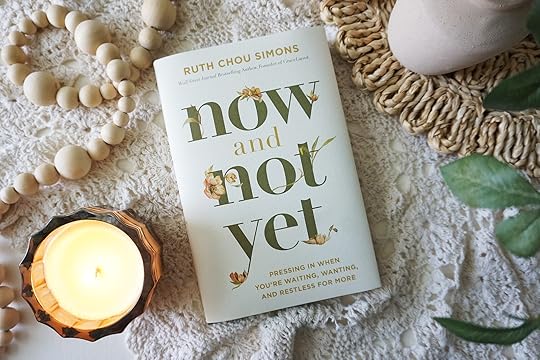
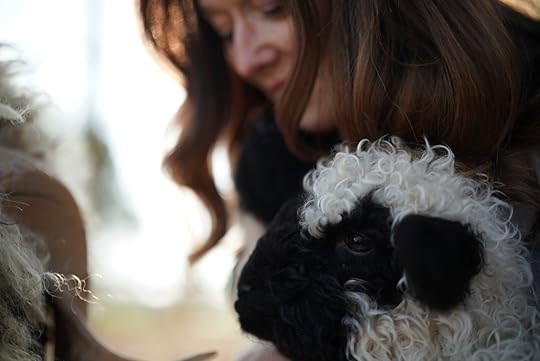
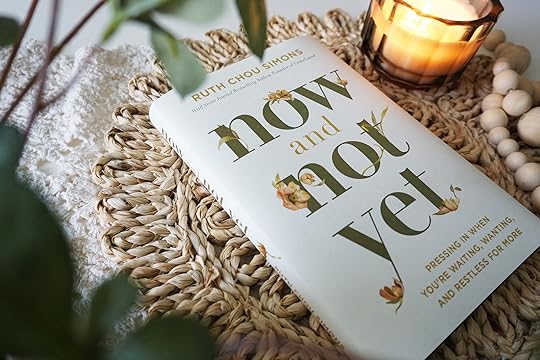

The familiar refrain came up again the other day in a conversation with a friend:
“I feel so restless.” I’ve lost count of how many times this admission has surfaced among friends at small groups and dinner parties in recent months. And after so many years, I’ve come to hear the questions behind the statements:
“When my heart is pacing the floor, I’m really looking for a way to rest.”
Is this all there is?
How do I break out of my tedious life?
How do I get where I want to go?
Is it okay to feel discontent?
What if I’m not passionate about the life I currently have?
If restlessness is defined as “the state of being unable to stay still or be happy where you are, because you are bored or need a change,” then what I’m looking for when I’m feeling restless is relief from that unease.
Here’s the thing: I really want to be able to be still. Not just physically still…but also mentally, emotionally, and spiritually still. I want to experience relief from anxious striving, worry, and the fear that the Good Life will pass me by. In a word, I’m after peace. When my heart is pacing the floor, I’m really looking for a way to rest.
What’s at the heart of our longings for change, for something different, for something more? When I peel back the layers of my restlessness, I always find, at the core, a fear that God doesn’t know best, that somehow he didn’t get the memo about what I really need, what I really want, or how my life should really turn out.
The core belief of my restlessness stems from thinking I can’t truly rest until I secure everything I think I need.
“The core belief of my restlessness stems from thinking I can’t truly rest until I secure everything I think I need.“
The first book of the Bible reveals how we all became restless in the first place. Adam and Eve had everything they could possibly desire, and, more importantly, they lived in the very presence of God.
They had unhindered fellowship with their Creator, and all of creation was at rest. God gave them access to everything except for the fruit of the Tree of Knowledge of Good and Evil. When the Serpent came to tempt Eve, he didn’t tempt her with the fruit itself; he planted a question in her mind about what the fruit could give her access to. He questioned God’s goodness and plan for Adam and Eve, and she took the bait.
She wanted to be like God, to know what he knows, to attain for herself what she didn’t fully trust God to provide. You see, Eve’s decision wasn’t a momentary lapse in judgment, and she wasn’t hypnotized by a shiny Red Delicious apple. Instead, she let herself believe that God was holding out on her, that he wasn’t yet giving his best to her. So she opted to reach out and get it for herself. She wanted more.
More than what God had provided. More than what he’d promised. More than God himself.


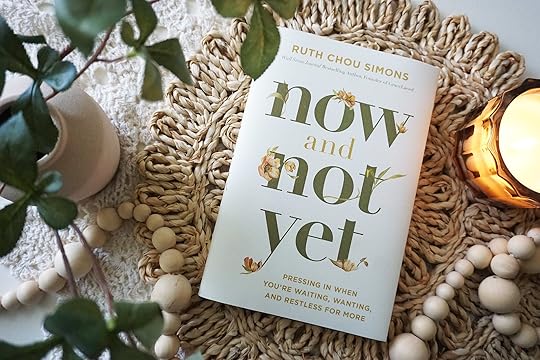

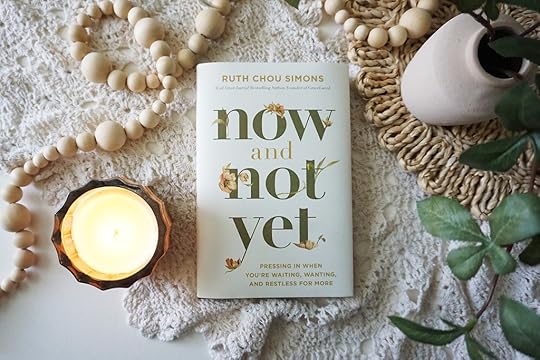

She was looking for more than God’s provision, but instead of giving her more, her search led to a restless longing within her and within every person since. Because of sin, Adam and Eve knew shame for the first time and experienced a feeling they had not known prior: a sense of not enough.
Without the brokenness of sin, we wouldn’t wrestle with waiting, wanting, and restlessness. The feelings themselves aren’t sinful, but the temptation to find more on our own can lead to sinful responses if we try to substitute true rest in God with comfort in anything else.
“Our restlessness may be a result of the fall, but redemption restores our ability to truly rest.“
Though sin, disbelief, discontent, and disobedience entered the world through Adam and Eve in the garden, God’s plan has always been to restore us to the relationship we were intended for and the rest we were created for. Our restlessness may be a result of the fall, but redemption restores our ability to truly rest.
We can rest because of internal change even when our circumstances haven’t changed externally.
That’s why Jesus promised true rest:
“Come to me, all who labor and are heavy laden, and I will give you rest. Take my yoke upon you, and learn from me, for I am gentle and lowly in heart, and you will find rest for your souls. For my yoke is easy, and my burden is light.” (Matthew 11:28–30)
Rest for your souls. Jesus offered freedom where there was bondage, spiritual rest where there was endless striving, and a sigh of relief where only anxious restlessness existed before.
His Word is true for me and you today as well—the offer still stands. When we put our hope in Jesus, we trade restless feelings about our not yets and not enoughs for his already and all-satisfying.
We trade the burden of trying to access what we think we’re missing for the rest that comes when we receive what God fully provides.
“We are made by God, for God, and to be satisfied in God.“
We can be at rest right where we are because our ability to “be still, and know that [he is] God” (Psalm 46:10) is not dependent on whether our circumstances feel restful or light. It’s wholly dependent on where we turn for true rest.
God made us to need him, to turn to him for the rest we seek.
It’s an active response to the restlessness we may feel. We are made by God, for God, and to be satisfied in God.
Like Augustine said, “You have made us for yourself, and our heart is restless until it rests in thee.”
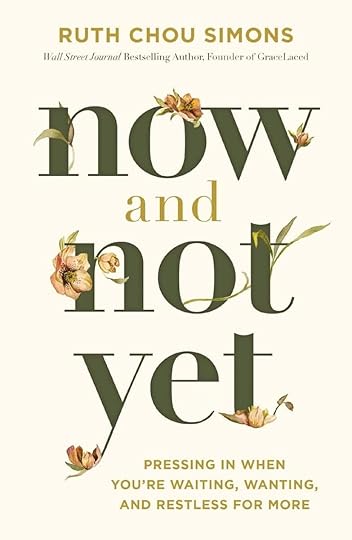
Ruth Chou Simons is a bestselling and award-winning author of several books and Bible studies. She is also an artist, entrepreneur, podcaster, and speaker, using each platform to spiritually sow the Word of God into people’s hearts.
In her latest book, Now and Not Yet, Ruth shares hard-won lessons about what it takes to press in and live faithfully today even if your right now isn’t exactly what you want, planned, or hoped for.
Learn more about her at ruthchousimons.com or connect with her on Instagram at @ruthchousimons.
{ Our humble thanks to Nelson Books for their partnership in today’s devotional.}
April 11, 2024
What is the Most Important Thing You’ve Really Got to Know Because It Literally Changes Everything
“In one sentence, what does it come down to — what is the one most important thing for people to know?”
The Romanian journalist leaned forward, asking me the question at the end of an hour long interview on live radio broadcasting across a country that was under rigid and oppressive Communist regime still in our recent life times.
What I don’t feel was rushed or hurried, only this palpable, certain, steadying peace. What matters can take its own time.
I looked down at the floor, as if I could find the weighty answer laying there somewhere at my feet — how in the world to know the answer such a question? Where was the string of words that was but one sentence, that was ultimately the one thing in all the universe that matters most?
As I scanned the mental shelves of my mind, groped along almost half a century of messy experience, looking for that one sentence to emerge, I not only felt inept — but I felt the growing silence filling the heavy moments of live radio. Yet what I didn’t feel was rushed or hurried, only this palpable, certain, steadying peace. What matters can take its own time.
There are roads ahead of us that are dauntingly steep and seem unnavigable —- and yet we relentlessly try to keep up and not fall behind everyone else seemingly sailing by with a blithe wave and not a piddling care in the world.
There is grief and there is loss and there is diagnosis and gravestones and mounting bills and exhaustion and depression and crisis and what is the most important thing for a soul to ultimately know?
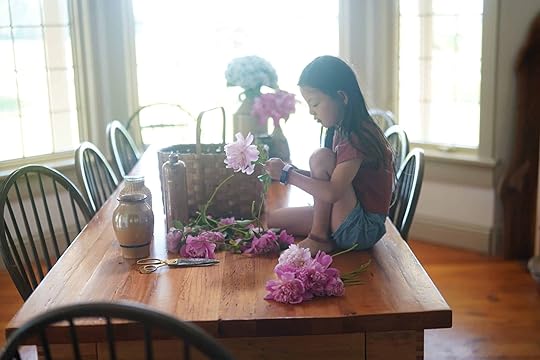
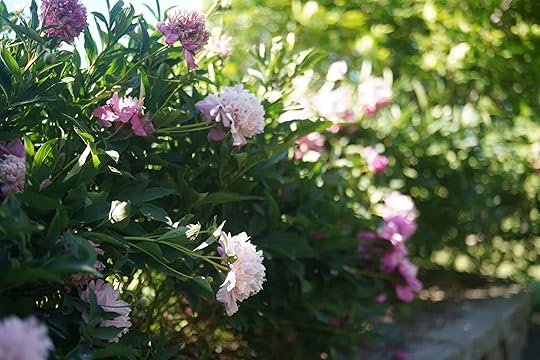
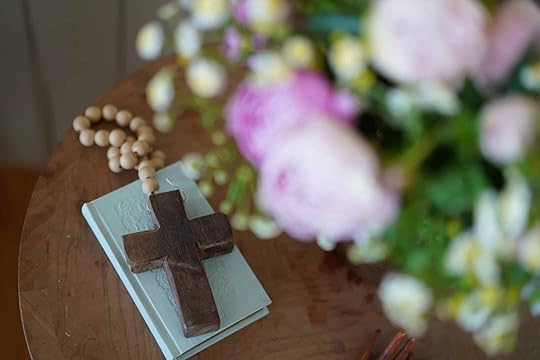
And there it was….
I’m not sure at all how fully I’d known it the moment before, or would have recognized it as the apex of importance.
And I know for sure that the truth of it hasn’t fully migrated down from my cerebellum to heart chamber and vein, but once I started to say the words, the utter gravity of them grounded me, I could feel it, grounded all matter because this is what most matters, this is what is at the crux of the cosmos, this is what is at the center of all our stories, this is the most important reality to know, and I said the words slow and close to the microphone and national airwaves:
“At the heart of the universe, is the face of God smiling love over you. What is most important in the universe isn’t eschatological or philosophical — it’s about a Love that’s unconditional. “
The thing that you most need to know is this:
At the heart of the universe, is the face of God smiling love over you.
The Romanian journalist across the table from me, her eyes glistened and she nodded — yes.. yes… yes... slow and certain.
What is most important in the universe isn’t eschatological or philosophical — it’s about a Love that’s unconditional.
I blinked it back there in the radio studio.
I have fell to the earth and sobbed at accident scenes lined with emergency responders, and I have struggled to stand when the hearse drove away with a body of someone larger than life to me, and I have wiped away grief as our baby cried for us as a white gowned team carried her into open heart surgery and I’ve wept behind closed doors over all kinds of unspoken broken that never seems to heal — and yet, nothing could be more true:
The most important story of the world is this: the unconditional love of God.
The most important headline of the universe is that the heart of God is for you.
The most important reality is that nothing can ever happen to change the reality of God’s love for you.
At the heart of whole universe and the holy Word, you do not find…
“For God was actually so disappointed with you … that He shook His head in gutted despair and begrudgingly went to the Cross for the failure of you. “
Or that “God was so disgusted with you … that He shamed you by passively aggressively dragging Himself to the Cross because of the mess of you …“
Or for “God was so full of wrath toward you… that He thundered to the Cross in volcanic rage that He could hardly contain because of the vileness of you.“
The most important headline of the universe is that the heart of God is for you. The most important reality is that nothing can ever happen to change the reality of God’s love for you.
Rather… at the heart of the whole universe and the holy Word are the words that are the very heartbeat of holy God:
For God so loved the world — you — that He gave Himself … and for you who believe in a purifying, perfect, protective love like His, you get to live forever with Divine Love Himself.
Father God loving you, Jesus Christ saving you, Holy Spirit wooing you — the Triune God never stops working all things into the good of being closer to you because of unassailable delight in you, and the good of getting to be with you.
When we were still deep in our sin, “God clearly shows and proves His own love for us, [as] Christ died for us” (Ro. 5:8).
When He rises in holy, righteous wrath over brokenness and sinfulness — it’s only because His heart so delights in yours, He will not stand for injustice to defile your heart or any heart.
Love, and longing to be with you, drove Him to the Cross, to cover all the brokenness and sin that was getting in the way between your heart and His. At the center of history and the universe is the reality that: The atonement at the Cross, the linchpin of all of history, was so He could at at-one-ment with you.
When He weeps with you and deeply grieves with you — it’s because His heart so delights in yours that His heart breaks with yours.
When He mysteriously and painfully allows what cuts deep — it’s because His heart is so committed to the wholeness of yours, that He leans in as the tender surgeon who allows a severe and sanctifying mercy to do the soul-saving work of shalom.



My therapist had said words that I’d scrawled across the top of a blank page in my journal:
You will persevere in life as well as you practice being receptive to Love.
“Your real work in the world is this: Practice opening up, being receptive, to God’s love. Perseverance is the practice of being receptive to Love.”
I keep returning to this like a compass that keeps turning me toward the most meaningful, whole life — turning me toward the gentle, delighting smile of God in everything.
How do you practice being receptive to God’s love?
To change the neuroplasticity of our brains requires the intentionality of practice…
And to change the progress of our lives, requires the practice of being receptive to love.
What if every part of you that you’ve labelled unlovable is exactly where Jesus writes: unconditionally loved
So I say it to myself, in the midst of lists and appointments and disappointments and loss and all the obstacles that are life: “Let God love you today any way He wants to love you. Let God love you through these moments and circumstances. Through whatever’s happening— feel the ways God is always happening to love you.”
You will persevere in life as well as you practice being receptive to Love.
I am a slow learner to the warmth of His delight, “Warm me, your servant, with a smile, save me because you love me… Blessed God! His love is the wonder of the world.” (Ps 31: 14).
When you deeply trust that God’s smile rests on you — no matter what happens, your soul is deeply at rest.
When you don’t resist all the unexpected ways God is loving you — you can expect to be the one who persists.
She who persists is the one who never resists but accepts that God is going to love in unexpected ways.
Because that is the most important thing to be expected:
When you know God smiles over you, and you’re won over by His smile, you are no longer under the pressure to strive for His smile, but you joyfully thrive because of His smile.
Expect the lovingkind smile of God, “expect God to knock at your door, expect God to rise on your horizon, expect hope and mercy and miracles and a glass of cold water, but just don’t expect God to come looking any way you expect. Expect nothing but hesed, the steadfast lovingkindness of God—- just not in the kinds of ways you dreamed” (excerpt from WayMaker).
What if not expecting to be loved by God through everything is the most heartbreaking sin under everything?
What if not expecting to be loved by God through everything is precisely what turns us toward all kinds of lesser loves that betray us?
What if the unexpected and unparalleled goal of a life well-lived is to feel unconditionally loved by God?
What if every part of you that you’ve labelled unlovable is exactly where Jesus writes: unconditionally loved.
And as with God, who is Love Himself, so it is with people: Unconditional love doesn’t mean unconditional agreement with someone but unconditional sacrifice for someone. God so unconditionally loves you as you are, that He won’t leave you as you are, but grows you into all you are meant to be, because growth is always what it means to be thriving and flourishing.
Unconditional love never leaves us unchanged, because anything stagnant and unchangeable isn’t growing but slowly dying.
The smiling delight of God will always bring us out of dark and into greater and greater light.




After the Romanian journalist closed out the radio program and signed off the air, she found my eyes and she held them, smiling, nodding again: yes, yes, yes.
Yes! Because the God of the universe smiles on us — everything changes in the universe.
When you know God smiles over you, and you’re won over by His smile, you are no longer under the pressure to strive for His smile, but you joyfully thrive because of His smile.
Her and I both brim liquid love, radiant smiles filling the space.
None of us may be living the life we imagined, but we are living the realest love story beyond imagining: In Christ, very Love Himself smiles and “celebrates and sings because of you, and He will refresh your life with His love” (Zephaniah 3:17 CEB).
And all across the realest airwaves in the universe, in our hearts, there’s this reverberating of a relief and joy that cannot be contained.
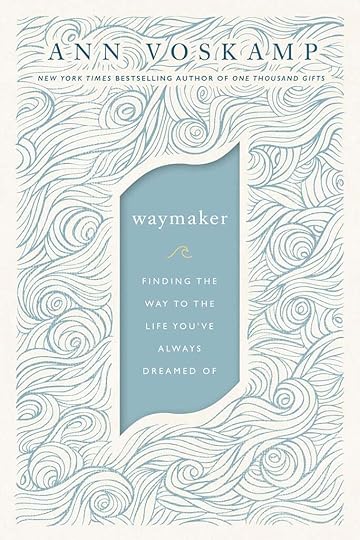
How do you actually practically find way to to live that is receptive to the love of God — so that you can actually persevere?
What does it personally look like to form your mind, your days, your life, into the deeply meaningful, cruciform love of Jesus and let God love you in the ways He deems good and best?
What does it powerfully look like to have a new way of life, a new way of being that rests fully in the hesod loving kind ways of God?
April 8, 2024
What the Locusts Ate & Dreams of Restoration
Weeks after her twenty-sixth birthday, Katherine Wolf suffered a catastrophic brainstem stroke that should have killed her. But she survived, although her life, her body, and her soul would never be the same. Today, she and her husband Jay are using their second-chance lives to find treasures hidden in the darkness of their pain, and inviting others to do the same. As an advocate, speaker, author, and mother navigating the world with both significant disabilities and significant joy, Katherine is the living, breathing embodiment of fully embracing a good/hard life. It’s an absolute joy to welcome Katherine to the farm’s table today…
Guest Post by Katherine Wolf
I spent my first Mother’s Day totally unaware that it was Mother’s Day.
My stroke had occurred three weeks before, and I had become a mom just six months before that. My battered, foggy brain guaranteed I never would recover even a flicker of a memory from that day of my life, although a single photo was snapped. I’m pictured in the foreground—eyes closed, swollen head tilted back on my hospital pillow, and monitoring wires sprouting from my half-shaved scalp.
At my bedside, Jay is holding a deliciously chunky baby James, who wears a onesie with the word Mom across the front. Even though I appear unconscious, my left hand is wrapped around James’s little thigh.
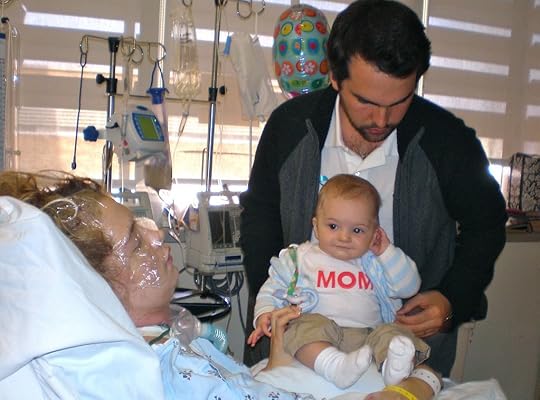

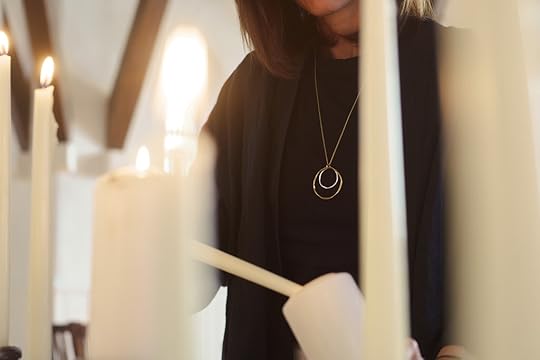
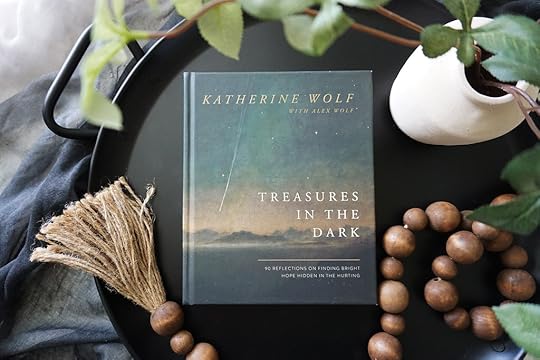
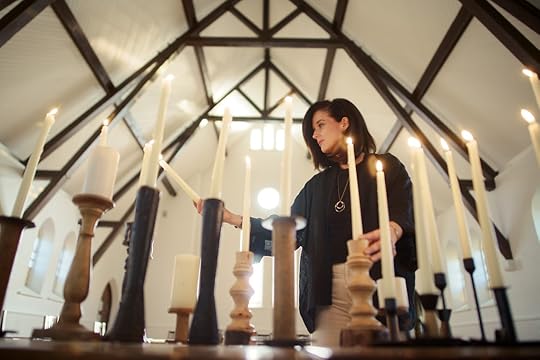

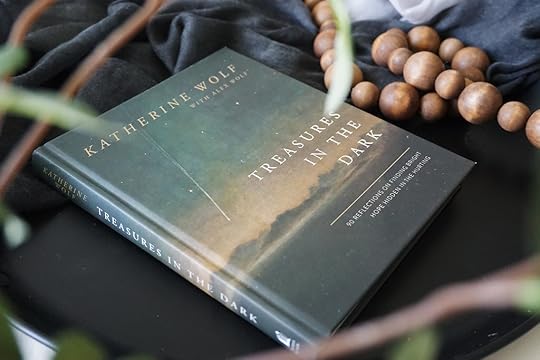
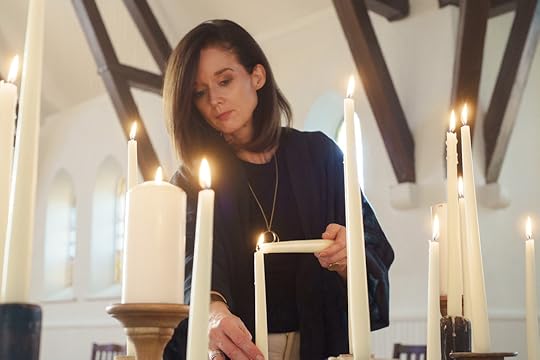
Losing my ability and access to parent my infant son was, hands down, the most excruciating part of suffering a massive stroke.
When I was still living in hospitals, family members would bring James to see me. But when nap time came or visiting hours ended, he would be taken away to a house that wasn’t mine to be cared for by someone who wasn’t me.
When I was healthy enough to move into a house with Jay and James, my gait and coordination still lacked enough stability to allow me to safely care for James. I remember sobbing in my bed as I listened to James cry in his crib because I knew I could not walk into his room and hold him in my arms like most mothers could.
The grief—and guilt—were unbearable. I had never known a spiritual famine as miserable as this one.
“I had never known a spiritual famine as miserable as this one.”
The first and second chapters of the book of Joel present a pretty grim—but scarily accurate—picture of what spiritual famine feels like in our lives. The prophet called those seasons “the years the locusts have eaten” (2:25). And old Joel didn’t spare a colorful detail when it came to just how dry and dreadful those days of famine were for the Israelites. Food was scarce, the land was parched, and foreign armies threatened in every direction. Joel even said joy was “ just a memory” (1:16 MSG). I mean, yikes. Does this sound kind of like the famine you’ve been through, or is it just me?
Then Joel told us the Israelites finally turned toward God in the midst of their suffering. They cried out to Him. They expressed their longing for restoration. And He delivered. He delivered so fully that no one could argue that God was anywhere but “in the thick of life with Israel” (2:27 MSG).
Dear one, I think what was true for the Israelites millennia ago is true for you and me too. God is waiting for us to turn toward Him, to trust Him with our dreams of healing and wholeness. He wants to show us that He’s not just interested in survival; He’s interested in life-to-the-thickest restoration.
We saved that Mom onesie from my first Mother’s Day photo, even though the idea of having another child seemed impossible (even delusional) at the time. I couldn’t care for the one I had, after all. But something compelled us to pack the little outfit away. Somewhere deep, deep, deep in my heart, I held on to the flicker of a dream and the whisper of a prayer that I might have another child. That the years the locusts ate might just be restored. That God might be good for His word.
“I nurtured a vision of what restoration might look like in my life.”
For a long time I didn’t even dare put out-loud words around the particular hope of second-chance motherhood. But I nurtured a vision of what restoration might look like in my life. One day, I got the courage to share that vision with God.
Beloved, I know that the locusts have eaten away at the fullness of your life. You have starved. You know what famine feels like. But tell me this: What would restoration look like for you?
Be specific. Offer God your detailed dreams of wholeness.
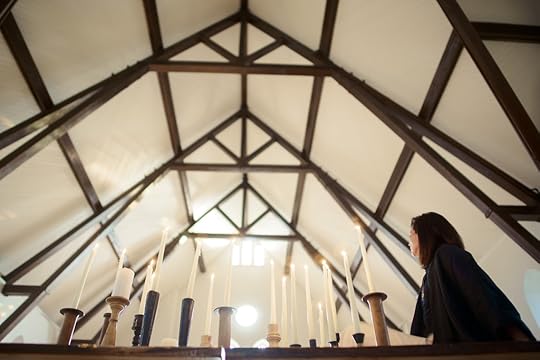

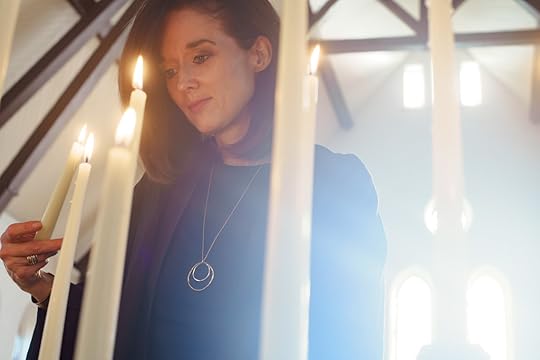
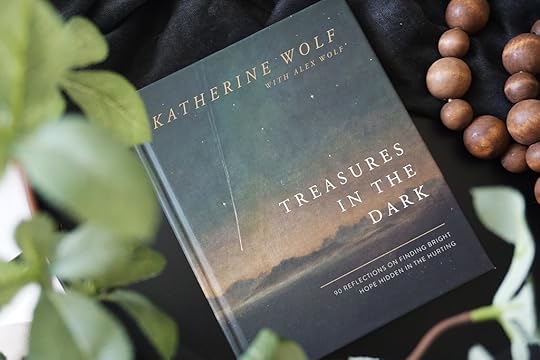


Of course, there’s no magic in expressing these dreams to God. But there must be meaning in it, because He asks us to do it. In my life, restoration hasn’t been granted like a wish. It’s come in God’s timing and in God’s ways, not mine.
If I’m being honest, it felt like He took His sweet time making it happen. But after eight long years, Jay would dig out that onesie and snap another Mother’s Day photo, this time of my poststroke baby, John, wearing it on his first Mother’s Day.
In that moment the restoration was as thick as a baby’s thighs. Take that, locusts.
“In my life, restoration hasn’t been granted like a wish. It’s come in God’s timing and in God’s ways, not mine.”
For the record, my second-chance parenthood has been anything but simple or easy. The euphoric thrill of mothering my two boys was often brought back down to earth during a cross-country flight with an inconsolable toddler or some angst from our hormonal teen. I have yet to master any Zen-like tranquility or twinkle-in-my- eye gratitude as the family melts down every Thursday after school like clockwork. But, hey, nobody claimed restoration has to be perfect.
So much has been restored in my life, and truthfully I’m still waiting on some more.
But this time I’m letting God in on the longing so that I’m not alone for the wait.
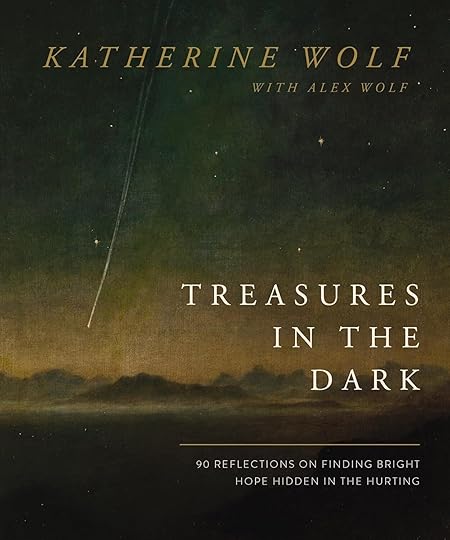
Katherine Wolf is a survivor and advocate who leverages her redemptive story to encourage those with broken bodies, broken brains, and broken hearts. She and her husband are creating sacred spaces for families affected by disabilities through their ministry at Hope Heals, Hope Heals Camp, and Mend Coffee & Goods.
Katherine’s newest book Treasures in the Dark: 90 Reflections on Finding Bright Hope Hidden in the Hurting empathetically guides readers in reframing their darkness as a sacred space in which the light of hope can shine most brilliantly.
With her vibrant faith and unique perspective on life as a stroke survivor and person living with significant disabilities, Katherine will inspire, encourage, and strengthen tender and hurting hearts.
{ Our humble thanks to W Publishing for their partnership in today’s devotional.}
April 5, 2024
How to Deal With Stress & Burnout & Find Real soul Rest
Maybe when your first real introduction to Jesus is through a dream, you should expect life to take an unexpected turn. Tessa Afshar, who was born in a nominally Muslim family in the Middle East, ended up being a best-selling author of Christian books. In today’s reflection, she writes about her battle with anxiety and how she learned an important lesson from Esther. It’s a joy to welcome Tessa to the farm’s table today…
Guest Post by Tessa Afshar
I pressed myself beyond my endurance until, finally, I experienced a terrifying burnout. For a whole month, I could not work, or pray, or accomplish anything.
Twenty years ago, my life fell apart.
I had been shouldering pressures I had not been designed to carry, pushing myself into a rhythm that lacked the biblical balance of work and rest. Year after year, I pressed myself beyond my endurance until, finally, I experienced a terrifying burnout. For a whole month, I could not work, or pray, or accomplish anything.
The burnout opened the door to anxiety. A deadly parade of what-ifs that attacked me relentlessly. What if I never improved? What if I couldn’t work? What if this was the rest of my life? What if I couldn’t pay the mortgage?
Because these thoughts were so persistent, they dug a trench into my psyche. Anxiety became a way of life. Even when I wasn’t thinking of any scary possibilities, I felt anxious. Everything sparked a fire of stress: work, travel, people. All of life had become overwhelming.
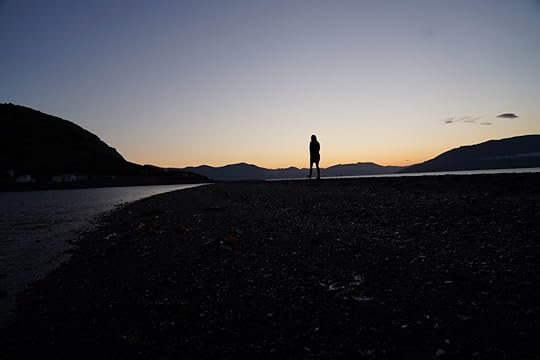

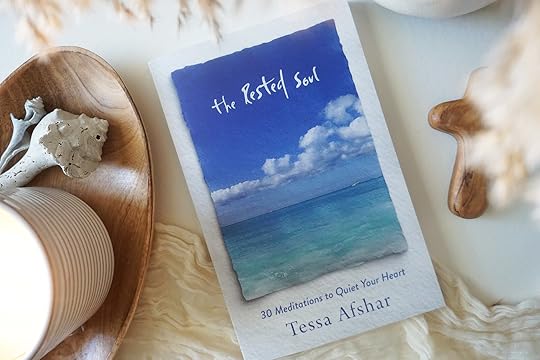

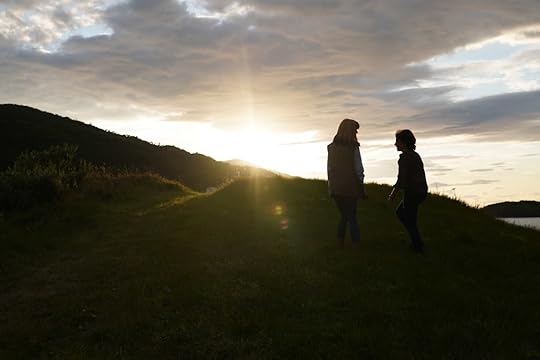
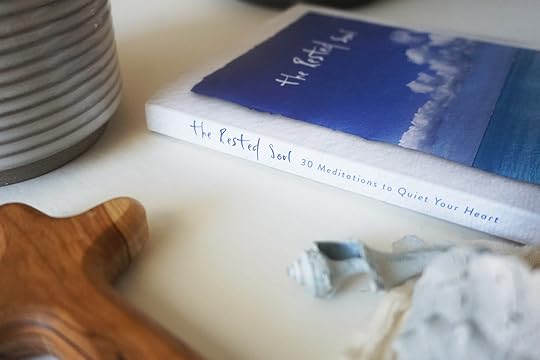


As I struggled with this unwieldy foe, my body started to fall apart.
“There is something terrifying about being trapped in a body that isn’t functioning right. You can’t run away from your own body. You can’t predict when it will decide to misbehave.“
I began to suffer from neurological symptoms as well as stomach pain and nausea. This only exacerbated the anxiety. There is something terrifying about being trapped in a body that isn’t functioning right. You can’t run away from your own body. You can’t predict when it will decide to misbehave.
Sickness can pull the rug of security right out from under your feet.
The combination of anxiety, ill health, and a general sense of constant weariness brought me to my knees.
Finally, I said, “God, I can’t do this.” It became a habitual inward thought. “I can’t, God.”
Life has a way of reducing us to our I can’t places.
Just ask Esther.
Most of us are familiar with this famous verse when Esther’s cousin Mordecai asks her to help the Jewish people: “And who knows but that you have come to your royal position for such a time as this?” (Est. 4:14 NIV). It’s an encouragement we hold dear because it reminds us that God is in control of our times and places. That we have a role to play in His plans. That we aren’t in this particular situation by happenstance. And all of that is true.
But when Mordecai originally speaks these words, he means them as a little slap on the back of Esther’s hand.
A tiny rebuke.
Mordecai has just revealed to Esther that their people, the Jews, are in mortal danger. He has asked Esther to intercede on their behalf with the king. To use her influence as queen in order to save a whole generation of their people from Haman’s terrible plot.
And Esther’s initial response to this heartfelt cry for help is essentially, I can’t.
“Our thirty days, or thirty months, or thirty years of rejection and heartache don’t have the power to overcome God’s such a time as this.“
She reminds Mordecai that according to Persian law, if anyone appears before the king without being invited, they will be put to death. There is an exception clause. If the king himself intercedes on behalf of the intruder by raising his royal scepter of authority, they can be saved. But Esther doesn’t have any guarantee that the king will intercede on her behalf. In fact, she seems convinced that he will not protect her.
You see, her husband, the king, has not sent for Esther in thirty days. And Esther interprets her situation through the lens of those thirty days.
She has been married for five years at this point. And for a reason the Bible does not disclose, her husband has shown no interest in spending time with her for a whole month.
A month of rejection.
Esther’s response to Mordecai’s request revolves on the spine of this heartache. This painful time of being unwanted. Unnoticed. Unloved.
That’s why Mordecai has to remind her of God’s such a time as this.
God’s timeline trumps ours. Our thirty days, or thirty months, or thirty years of rejection and heartache don’t have the power to overcome God’s such a time as this.

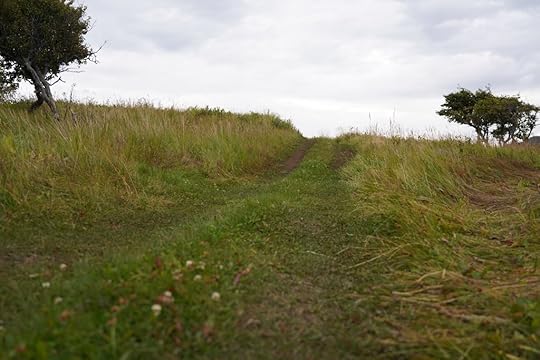
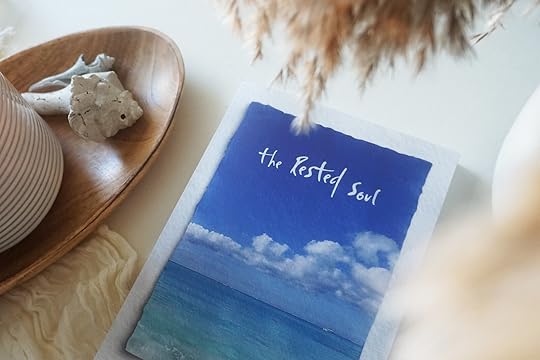


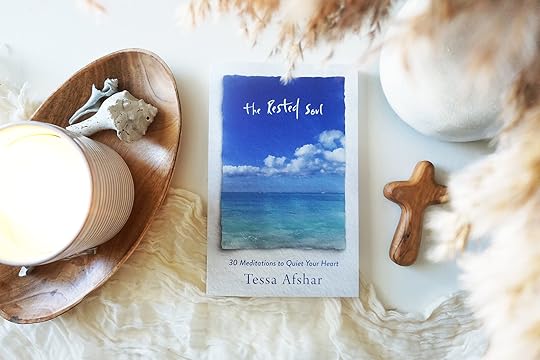


Often, when we have been reduced by life’s hardships, we measure our ability by our human timeline and arrive at the conclusion that we can’t.
Maybe that’s where you are right now. Maybe all you hear reverberating in your mind is: I can’t do this. I can’t cope. I can’t manage. I can’t survive this. I can’t.
“…the last thirty days or weeks or months don’t rule your life. They don’t get to dictate your future. They don’t have a right over you... You belong to God’s such a time as this.“
But there’s the story of Esther: the last thirty days or weeks or months don’t rule your life. They don’t get to dictate your future. They don’t have a right over you.
You belong to God’s such a time as this.
Like Esther, I had to learn this lesson in my own life. I had to repent of my I can’t. I had to capture that thought over and over again, and make it obedient to Christ. I had to agree with God’s Word that He who had called me is faithful; He would surely do it (1 Thess. 5:24).
I had to learn an important truth. It is a truth I practice to this day: Jesus, with You, I can. I can walk through this wilderness and emerge on the other side.
Once your soul learns that truth, the roar of discouragement is diminished to a mosquito’s buzz.
This hard season, this time of I can’t, may turn out to be some of the most fruitful in your own life. So grab hold of God’s such a time as this.
Be mindful of the places you are whispering I can’t with God. Don’t let them block your rest.
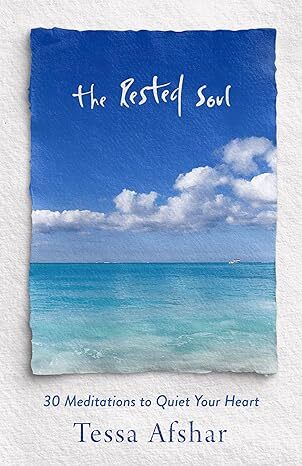
Tessa Afshar’s books have been on Publishers Weekly and CBA bestseller lists and have been translated into 12 languages. The Way Home: God’s Invitation to New Beginnings, won ECPA’s Christian Book Award in the Bible study Category. Visit her on tessaafshar.com
Are you battling anxiety and discouragement? In The Rested Soul: 30 Meditations to Quiet Your Heart, Tessa Afshar takes you on a devotional journey that helps to cultivate a rested soul. These deep reflections are accompanied by beautiful images by Tessa’s husband, which invite you to exhale, heal, and find rest in God.
Tessa’s meditations create an oasis of calm when powerful storms of anxiety assail you. She brings you into your hope-filled, joy-infused life in Jesus. In Him, our hearts find quiet and comfort. In Him, we have favor, authority, and strength. In Jesus, we find The Rested Soul.
{ Our humble thanks to Moody Publishers for their partnership in today’s devotional.}
March 28, 2024
Been Hurt? Or Frustrated? No One Can Afford to Miss this Memo & Mandate for Holy Thursday
It was on Holy Week Thursday, Maundy Thursday, maundatam Thursday, that the betrayed Jesus gave His people all a new mandate, that command of the Last Supper:
“As I have loved you, so you must love one another.
A new command I give you: Love one another.
By this everyone will know that you are my disciples, if you love one another.” (John 13:34–35)
Only those who love, are sent by Christ. Without love — Christ didn’t send you.
But it’s painful to tenderly realize that, too often, the way we actually live that?
You’d think it was some flimsy, take-it-or-leave-it suggestion.
You’d think disciples are actually known by the number of points of their creeds, or the acceptable books on their shelves, or the right conferences on their calendars, or the approved names they drop in the church foyer.
You’d think Christ’s own were known by who they avoid, who they disdain, who they call out, who they label — instead of who they pray for, who they have compassion for, who they have grace for.
Sometimes instead of shooting someone a clarifying question – we shoot arrows.
Why does it feel like we are all tearing each other apart?
That it feels like something in the dark that is trying to rip us brothers and sisters apart at the holy limbs, that love is laughed at as the anemic brother of muscular truth — and that acidic rhetoric seems like the blood flow through the Body, not love?
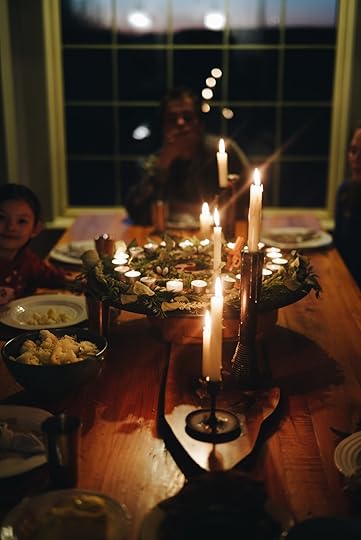 Resource: our heirloom Lenten Wreath
Resource: our heirloom Lenten Wreath
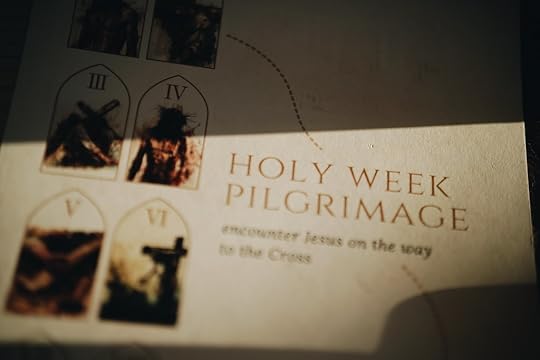

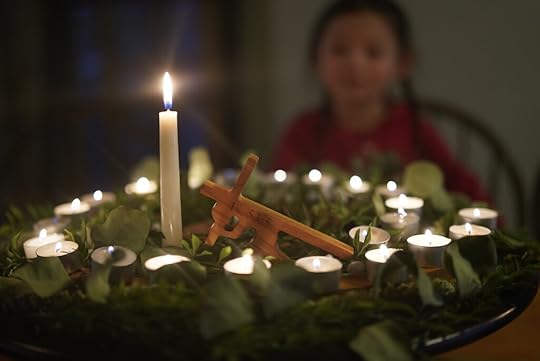 Resource: our heirloom Lenten Wreath
Resource: our heirloom Lenten Wreath
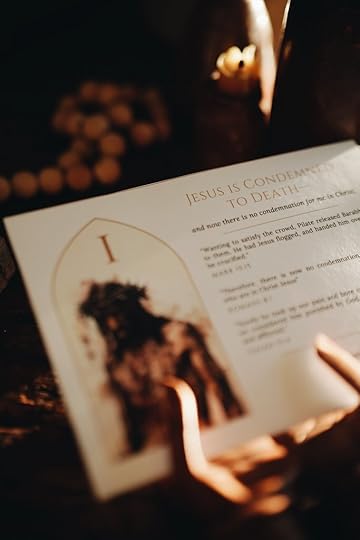
And there is Jesus before Calvary, Christ crushed beneath that Cross, begging that prayer of Maundy Thursday:
“Christians need to be most careful with words if we are the most Christ-full.”
“My prayer is not for them alone. I pray also for those who will believe in me through their message….
that they may be one as we are one – I in them and you in me – so that they may be brought to complete unity.
Then the world will know that you sent me and have loved them even as you have loved me.“ (John 17:20–23)
Who will keep His new commandment and who will be the answer to Christ’s prayers? Who will love as He lived? Who will live what He said: “Blessed are the peacemakers – for they will be called children of God.”
If we don’t live peace – whose children would we be then?
Only those who love, are sent by Christ.
Without love — Christ didn’t send you.
Christians need to be most careful with words if we are the most Christ-full.
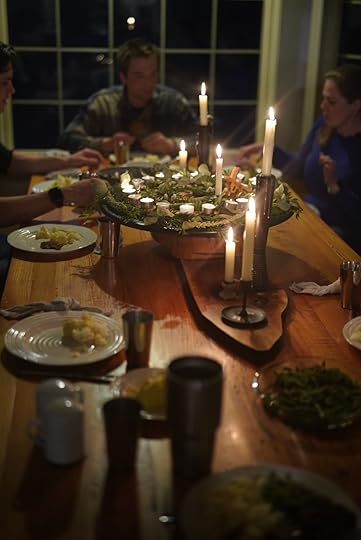 Resource: our heirloom Lenten Wreath
Resource: our heirloom Lenten Wreath
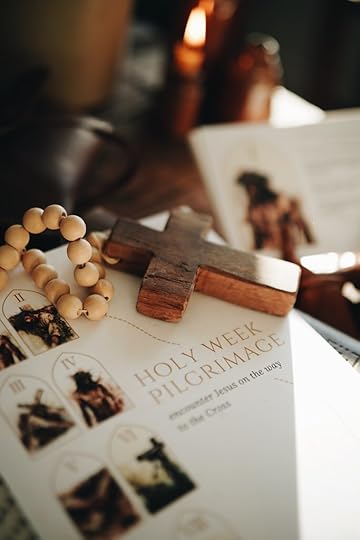
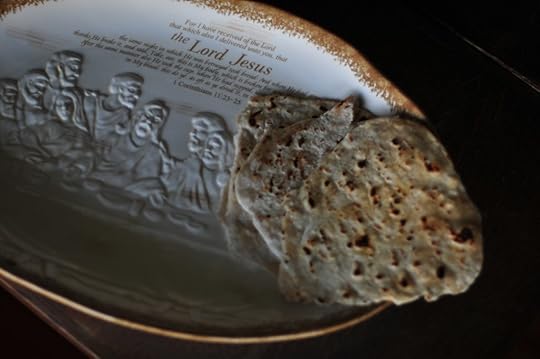
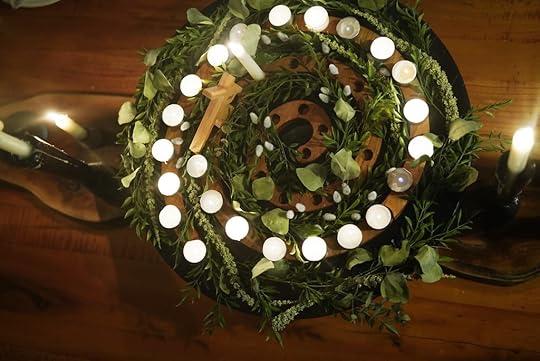 Resource: our heirloom Lenten Wreath
Resource: our heirloom Lenten Wreath
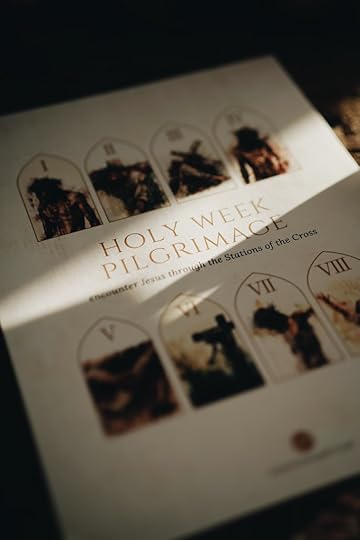
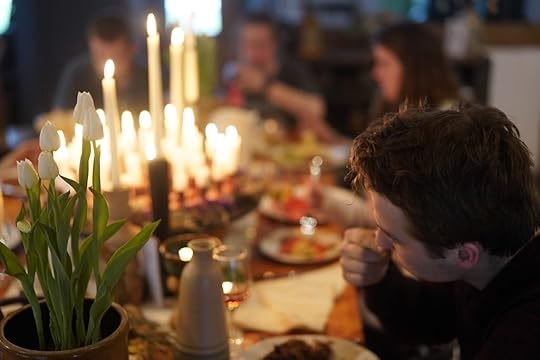
Instead of waging attack on the implicit issues of another’s faith life – isn’t the call to spend our lives openly encouraging an explicit faith in the living Christ?
The Body of Christ has a thousand angry opinions, a thousand fractions and divisions and circles, all these cliques of circles, all these walls. But the tender truth of it is: Not one of us is not broken.
And acknowledging our own brokenness is what makes high walls between people crumble. Because when you are broken– it’s always your own pointing finger that is actually broken and you realize you can’t point at anyone else as the only sinner.
Brokenness breaks us from our need to be “right” and breaks us open to our need to extend the grace we have received at the foot of the Cross.
Because while we were yet sinning directly against Him, Christ reached out wide to us and directly took the nail and literally gave us His heart for our hurting ones.
If we truly believe someone’s soul is in danger — why demonize them instead of evangelize them? Why not win them over with love, than overwhelm them with your disdain? Instead of waging attack on the implicit issues of another’s faith life – isn’t the call to spend our lives openly encouraging an explicit faith in the living Christ?
“Obedience to the law of Love is the most expedient way to preach the gospel.“
Because there’s Christ before Calvary, Christ crushed beneath that Cross, and what did He do but live the law of love?
What does God do but live the law of love: “ All day long I have held out my hands to a disobedient and obstinate people .”
God loves us while we sin, God holds out His hand to the disobedient, and love is what makes God the most potent of all.
Obedience to the law of Love is the most expedient way to preach the gospel.
Love is the the most radically subversive activism of all, the only thing that ultimately ever changed any one at all.
“Love is the the most radically subversive activism of all, the only thing that ever changed any one at all.”
We never have to be afraid to find ways to love — as if love might gag truth and kill God.
Love never negates truth. Because love never silences Truth. Love is the very foundation of Truth: without love, Truth crashes, a clanging gong.
Love is the language of Truth and grace is the dialect of God and Truth is only understandable if spoken with understanding love.
And without love, Christ didn’t send you.
Christ prayed that new mandate on Maundy Thursday, that we might lovingly be brought to complete unity — and unity doesn’t mean that we paper over our differences. It means we open the papers of His Word and dialogue — not open fire and destroy.
God’s people may not have doctrinal unanimity, but we must have definite unity, if we’re ever to have deep credibility.
It could happen like this: We could stop confusing unity with unanimity. God’s people may not have doctrinal unanimity, but we must have definite unity, if we’re ever to have deep credibility.
The eminent theologian, J.I. Packer, he had prayed for the “visible church as a single worldwide, Spirit-sustained community, within which ongoing doctrinal and denominational divisions, though important, are secondary rather than primary.”
True, there is always this tension between practicing Unity and preaching Truth – but it is the tension of two people hanging fiercely on to each other, like the tension of a bridge, that the Gospel might go forth into all the world. If we let go of loving each other — the Gospel goes nowhere.
And this is a real heartache: What can wound Christ more than Christians cannibalizing each other?
What can wound Christ more than Christians cannibalizing each other?
“I urge you, brothers and sisters, by the name of our Lord Jesus Christ, to agree together, to end your divisions… Is Christ divided?” ~1 Cor 1:10–14
Is Christ divided?
Puritan Richard Baxter in his work The Reformed Pastor brazenly wrote:
“He that is not a son of Peace is not a son of God. All other sins destroy the Church consequentially; but Division and Separation demolish it directly…”
And we get on our knees and pray: Division and separation demolish the Church directly.

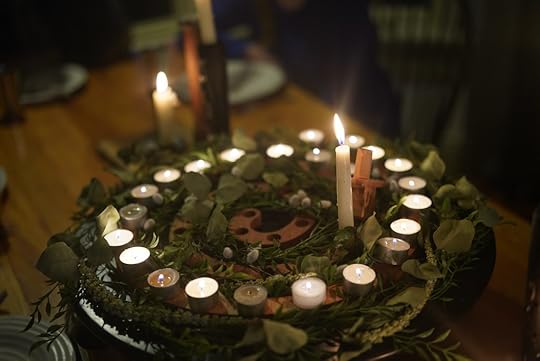 Resource: our heirloom Lenten Wreath
Resource: our heirloom Lenten Wreath

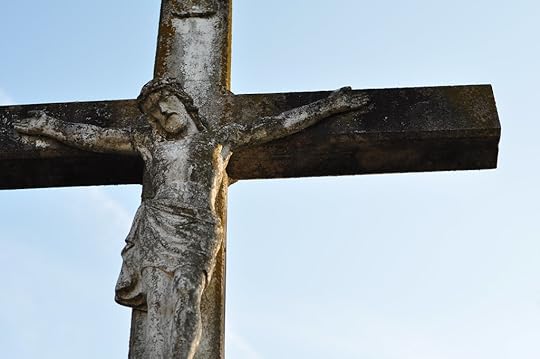
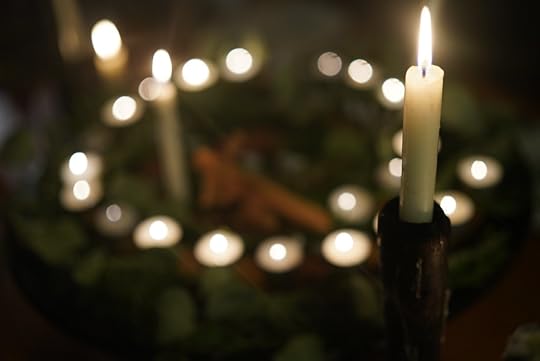
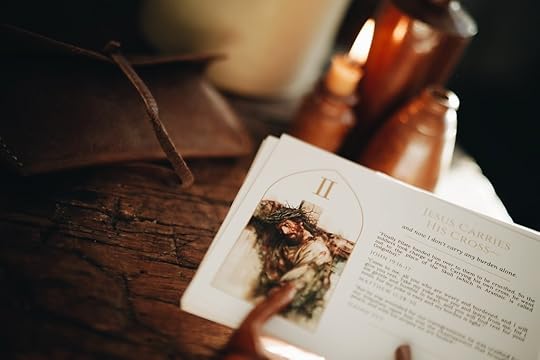
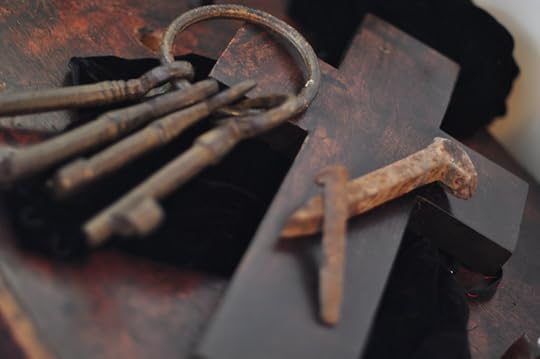
On the night when Jesus was betrayed — He gave thanks. If Jesus can give thanks in that kind of heartbreak — how can we not give thanks in ours?
And we can see Jesus there on Maunday Thursday, doing just this: “On the night when Jesus was betrayed — He gave thanks.“
If Jesus can give thanks in that kind of heartbreak — how can we not give thanks in ours? In the midst of our own wounds, our own tender stories, our own relational heartaches… there is still a way to give thanks, because we trust nothing is wasted and everything can make us more like Christ.
If Jesus can give thanks in the ultimate heartbreak — it’s possible for us to give brave thanks in any thing.
If even betrayal didn’t keep Jesus from being grateful — why are we letting any of life betrayals keep us from being grateful — and being like Jesus through them?
And then, Jesus, who’s been betrayed too, He comes to sit down beside you.
And He breaks this bit of soft bread, and we can feel it, how our broken hearts soften too. And then He reaches out with one hand, to hand the bread to Judas — and with the other hand, He hands the bread to us.
We are all the Judases who have betrayed Jesus too. And on the night Jesus was betrayed — we are the one who can give thanks too. We can give thanks that He gave grace to all the Judases like us too.
Every single one of us: We are all the Judases who have betrayed Jesus too.
And what can we do but take the bread — and murmur our heartfelt thanks too?
Because this is no less true too: On the night Jesus was betrayed — we are the one who can give thanks too.
We can give thanks that He gave grace to all the Judases like us too.
And when we think how great our own sins are — how can not have great gratefulness and great grace for every other broken sinner?
When we know how much grace we’ve been given to cover our own betrayals of Jesus — how can we not give others grace for theirs?
It’s Maundy Thursday — and the Mandate is to love every day, like Jesus loved us to death on His last day.
And when we give thanks for God’s grace, even in our hard places — we see we actually have more than enough of God’s grace to pass on to others in theirs.
When we know how much grace we’ve been given to cover our own betrayals of Jesus — how can we not give others grace for theirs?
Christians could be the ones known for living like the only thing that counts is faith expressing itself through love. (Gal.5:6) The people who know, not just in our cerebral synapses, but in the chambers of our bravely pounding hearts: that if we have right doctrine, but have not love, we are nothing more than a clanging gong.
On Maundy Thursday, turns out:
You only get to be known as a disciple, if you’re known for your love.
We get to be known as Christ’s disciple, if we are known for our love — and if we keep reaching out in ways that others know Christ’s undying love for them.
Take Time to Linger on a Transformative Holy Week Pilgrimage
Enter into Holy Week with a Holy Week Pilgrimage — a free tool with these illustrated, Scripture cards to help you encounter Jesus through Holy Week, inspired by the Stations of the Cross.
Linger each day of Holy week with Love laid down — so you can rise up and be love.
Take a pilgrimage on the Way of the Cross this Holy Week — slow and steep in each day’s scripture and gaze on the Lamb of God – and feel yourself move through the narrow gate into the narrow way that expands your heart.
Download the Complete Holy Week Pilgrimage Experience with Scripture and Cards
This one’s for those who dare to trust that what looks like a whole lot of broken pieces — can actually be the beginning of the abundant life.
Pick up our story of The Broken Way and in the midst of heartbreak, dare to step into the abundant life.
March 26, 2024
How to Dive Back In, Instead of Letting Fear Control Your Story
Author Craig Allen Cooper is no stranger to disillusionment, discouragement, and despair. Frequently rolled by the waves in his own life, Craig has dug deep for decades into the well of God’s tender mercy for comfort, encouragement, and strength. Out of the depths of his own personal devotions, comes the conviction that God wants His children to be more aware of His faithfulness than they are of their own faults, failures, and frailties. An encourager at heart, the heart of God beats hard through His words, and it’s a joy to welcome Craig to the farm’s table today…
Guest Post by Craig Allen Cooper
“When I am afraid, I put my trust in you.“
Years ago, I watched my nine-year-old son playing in the ocean during a family vacation.
When we first got there, Joshua didn’t worry at all about the waves. He just dove in headfirst and attacked the sea with full abandon. He wore a life jacket, not because it was comfortable or he thought is looked cool, but only because his parents made him.
Then, it happened . . . my son got rolled by a monstrous wave.
This wasn’t an “over, under, or through” type of wave. It was an all-out sucker punch. He had no time to react. The wave just came upon him like an uppercut, and Joshua took it directly on the chin.
Driven harshly into the bank, he lost his breath, cut his lip on the sand, and tasted the saltwater’s sting.
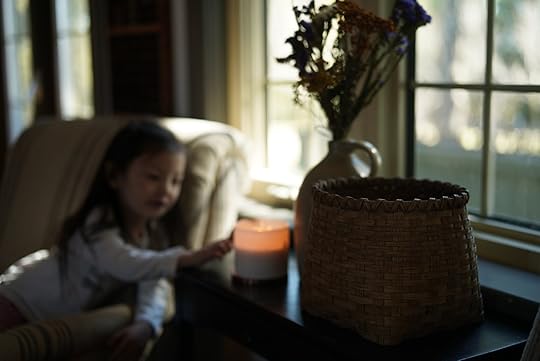

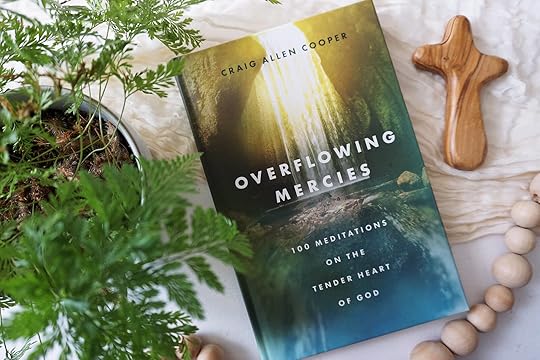

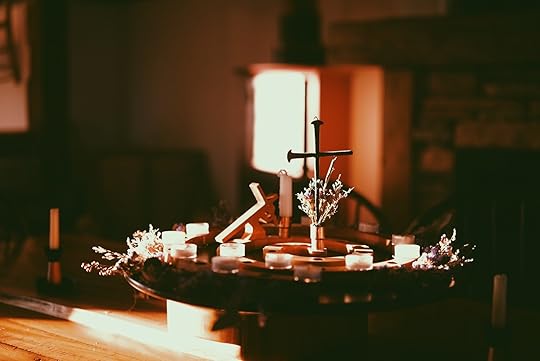
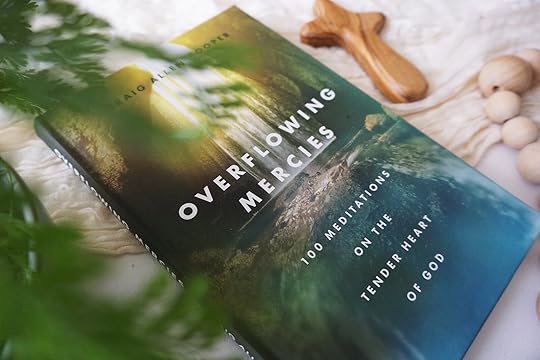
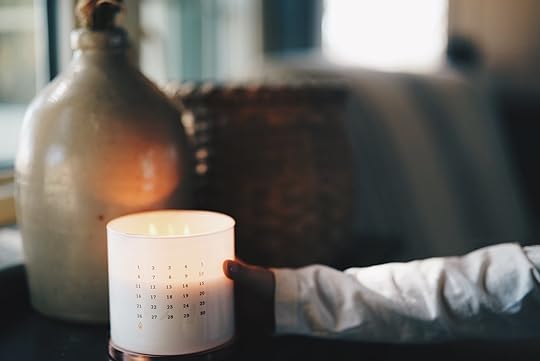
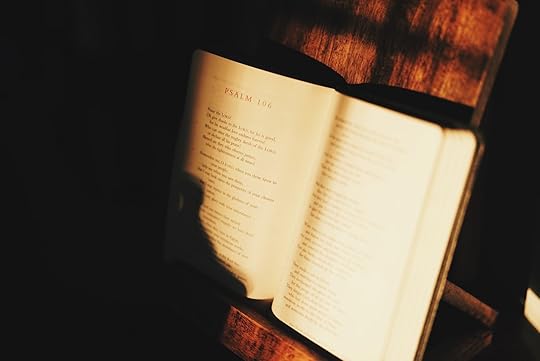
Unfamiliar emotions entered the boy’s soul.
He felt dazed and confused, not reactions he’d previously associated with the ocean. Fear. It took him two full days and a lot of encouragement before he ventured back into the water.
On one of those days confined to the shore, we talked about what David said in Psalm 56: “When I am afraid, I put my trust in you. In God, whose word I praise, in God I trust; I shall not be afraid” (vv. 3–4).
These verses help me tremendously because I, too, struggle with fear. I told my son that my fear may look different from his, but the truth is that there are many times when I’m very afraid, and it helps me to know that King David struggled with fear too.
“I’m beginning to see that fear as an invitation to go to God in my trembling and put my trust in Him. “
I often approach life a lot like Joshua was approaching the ocean. I dive in laughing . . . until I get smacked around. Then everything changes. Knocked over relationally, I’m less apt to dive back in. Disillusioned by hope deferred, I keep my dreams to myself. Sometimes, it’s easier just to say, “I’m not doing that again.” But then I think about all I’m missing and wonder if there’s another way of dealing with my fear than pulling back.
I see another way in this psalm. I like how David admits his fear in this verse. And then he goes to God with it.
I encouraged Joshua to talk to the Lord, to battle his fear through prayer. I grinned when my son got back into the ocean, this time with a healthy respect for the waves and a greater appreciation for the God who controls them… and Who helps us battle our fears.
As I survey the landscape of my own life, I can relate.
The truth is, I’ve been knocked around a few times (job losses, failed ventures, ministry letdowns, relational challenges, loss of loved ones, traumatic events, personal injuries, and the list could go on and on). Every time it happens, I’m less likely to dive in to the deep end and more tempted to fear.
But now, I’m beginning to see that fear as an invitation to go to God in my trembling and put my trust in Him.
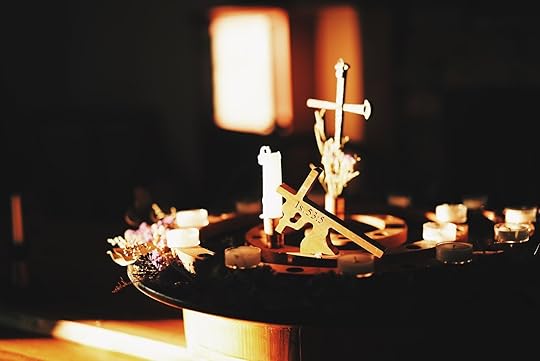
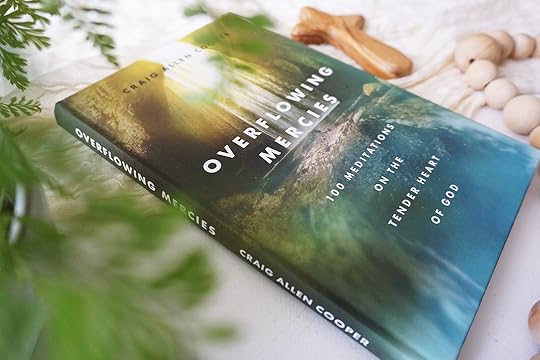

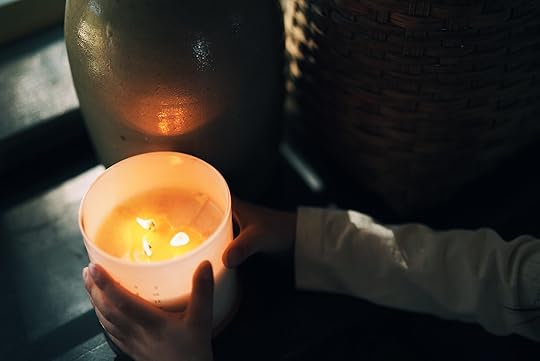
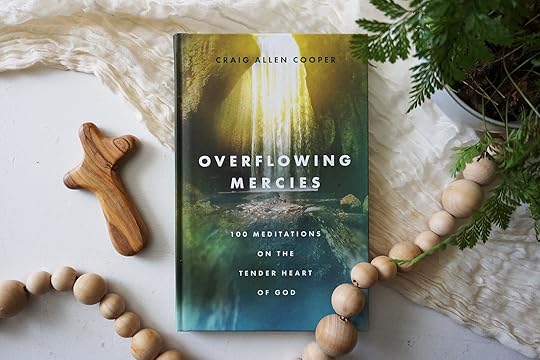
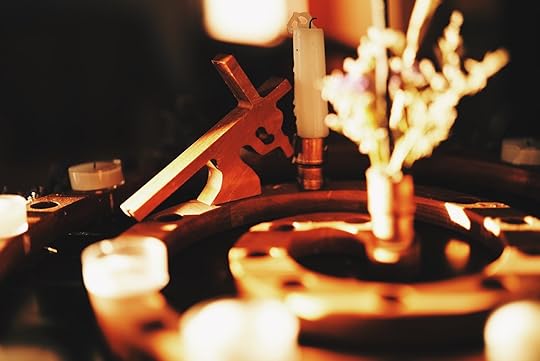
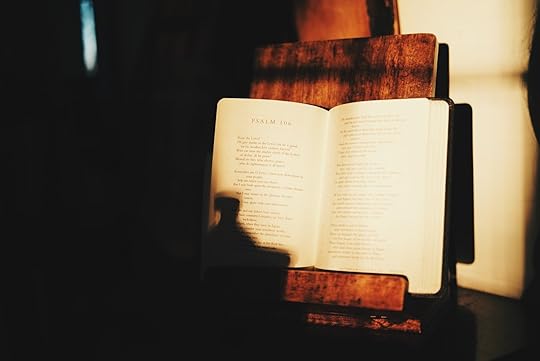
Isn’t it good to know that we can be honest with the Lord about our fears, and because of His tender mercy, He will set our hearts and ease and give us courage and peace?
“Lord, when I’m afraid of all these things, I put my trust in You. Please help me. Strengthen me. Steady me, and deliver me from my fears, for Your glory.“
Our fears might look different than a nine-year old’s, but so often the effect is the same.
Have you ever been rolled over by the waves of this life and then struggled with the desire to get back into the “ocean” of similar situations?
What joys might you be missing out on due to your fears?
How might it change your life for the better to admit them to God and turn your trepidations over to Him in faith?
If you, like me, struggle with fear, I would encourage you to take this prayer and put it into your own words,
“Father, thank You that I can be honest with You about all my fears and that instead of shaming me, You meet me with mercy and grace. So, here’s what I’m afraid of right now [tell Him your fears].
Lord, when I’m afraid of all these things, I put my trust in You. Please help me. Strengthen me. Steady me, and deliver me from my fears, for Your glory.
Give me courage to venture back into the sea of Your mercy.
In Jesus’ mighty name, I pray. Amen.”
Wherever you are right now? Dive back in….
The ocean of God’s love is calling for you!
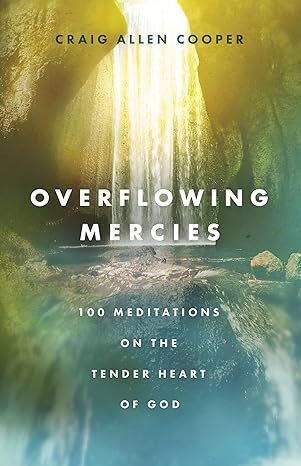
Craig Allen Cooper is a USA Today bestselling author who co-wrote the book Glad You’re Here with Grammy-nominated country singer and songwriter, Walker Hayes. Glad You’re Here instantly became a Publisher’s Weekly, ECPA, and USA Today national bestseller. Craig served as one of the founding pastors of Redeeming Grace Church in Franklin, Tennessee, is the founder of Glad You’re Here Ministries, and he resides in the greater Nashville area with his lovely wife, Laura, and their four kids.
Craig Allen Cooper’s new devotional book Overflowing Mercies invites readers, through its rich meditations, to savor God’s deep and tender personal affection, spending 100 days discovering the beautiful, merciful heart of God. Overflowing Mercies is perfect for personal devotions, family/dinner table devotions, or small group enrichment and encouragement. If you’re longing to know the tender heart of God — dive into His Overflowing Mercies
{Our humble thanks to Moody Publishers for their partnership in today’s devotional.}
March 25, 2024
Holy Week Pilgrimage Into the Narrow Way That Expands Your Heart
Just after a winter sun rose scarlet across snow white fields, I find a curled newborn lamb shivering, still freshly wet, in the corner of the chilled tiny barn.
The narrow way is the only way to life.
Sometime in the still dark of the early dawn hours, she’d made her way down the dark and narrowest of passageways – the birth canal – and slipped out into this cold world and she trembles.
Since the beginning of time, ours births down the narrow canal testifies to the larger, cosmic truth:
The narrow way is the only way to life.
In the days just before Passover, in the days just right after Palm Sunday, in this midst of all these tired pilgrims making their pilgrimage to Jerusalem and the temple with their sin sacrifice, there were more than a quarter of a million crying lambs being herded through the streets of Jerusalem, lambs to be slain for Passover and the sins of all the people trying to find the narrow way.








The question I have to answer every day is: What does it mean to let your heart expand wide while taking the narrow way?
Sometime after the sun warmed mid-sky, after I try to get the newborn lamb up to it’s mother to nuzzle that full udder, hungry for those first swallows of milky life, a friend reaches out to ask how I’m navigating, how we’re all called to keep navigating all the things along the obstacle course that is life, and I find myself writing back:
The question I have to answer every day is: What does it mean to let your heart expand wide while taking the narrow way?
This is always the way: Narrow way. Expansive heart.
The narrow way leads to more than the expansive life; the narrow way leads to an expansive heart.
This is always the way: Narrow way. Expansive heart.
“Wide is the gate and broad is the road that lead to destruction,” says Jesus, the Lamb of God who is the Way. “But small is the gate and narrow the road that leads to life, and only a few find it.”
The way of sin is wide-open and easy—- but it narrows until life becomes crushing. The way to the fullest life? This way is as hard as it is worthy.
The way to the fullest life is narrow, but it expands the sidewalls of your heart into a spacious place full of grace.
She tells me she’s writing that down, carrying that with her, the way through: Narrow way. Expansive heart.
I tell her that I don’t know this way — at all, but this is the way I’m learning. This narrow way, with an expansive heart, this can only be a work of God. The only way to know this way through life is to intimately know the Way Himself, and let the Way Himself do that holy, heart-expansive work in me, His ways above mine.
The pathway of least resistance leads to the least life. And it’s only the narrow pathway, of great resistance, that leads to the great life.
I intimately trace the outline of His heart as the sun rises, reading now every morning through the book of Jeremiah, lingering with the curvature of His face and His ways, as purpose to do what I read, and what He whispers:
“Stand in the ways and see, and ask for the old paths, where the good way is, And walk in it; Then you will find rest for your souls.” (Jeremiah 6:16)
Ask for the ancient way, ask where the good way is, to find the way to rest for your soul.
And Jesus Himself answers the prophet Jeremiah’s words:
“Take My yoke upon you and learn from Me, for I am gentle and lowly in heart, and you will find rest for your souls” (Matt. 11:29).
The way of the Cross is the only way to come across any rest for your soul.
Echoing the very same words of Jeremiah 6:16, where God said the ancient way is the good way to find rest for your souls – now Jesus is saying He Himself fulfills Jeremiah 6:16, that He is the ancient way, the good way, the narrow way, THE WAY, to find rest for your soul.
Ask for the narrow way of Jesus, and, however the wind blasts and the storms hit, don’t wander away from the way He carried His cross, don’t wander from the way that carries a cross.
The way of the Cross is the only way to come across any rest for your soul.
Real rest for your soul is found when you leave the rest — and take the narrow way of the cross with its expansive beams that stretch a heart wide open to real life.






Those looking for something sacred travel slow. Those looking for the holy linger.
After the sun dips down into winter fields and the twilight thickens blue, after I’ve sat in the piled hay of the tiny barn, in the warming glow of the heat lamp, to bury my hand in the tight curls of the newborn lamb to feel her heat, to feel her tummy filled with the thick rich of filling colostrum, I curl up on the couch with our youngest to read to her the last pages of her E.B. White chapter book that her and I have been working our way through together, and I catch on this one line:
“A person who is looking for something doesn’t travel very fast.”
And I pause here. And my soul stills.
Taking the Way of Jesus takes time. It takes time to take the narrow way that births a large-hearted life.
Those who aren’t looking for anything worthwhile, think it’s only worthwhile to travel fast.
And that wide way beckons to the fast and the furious, to the hustlers and fear-mongers, to the big and loud, to the angry and soul-hungry and joy-malnourished.
But there is another way.
Those looking for something sacred travel slow.
Those looking for the holy linger.
The way of genuine spiritual formation is slow. Taking the Way of Jesus takes time.
It takes time to take the narrow way that births a large-hearted life.




And there’s a way to slowly enter into Holy Week by the narrow gate, by the narrow way, to take the Way of the Cross, and pilgrimage with God, and linger with Love that lays Himself down.
And feel your heart expand with love, because Love Himself moves right into the deepest chambers of your heart – the love of the only One who has ever loved you to death and back to the fullest life.
In the middle of the night, I slip back out into the freezing night air, to check on the newborn lamb, to see if it needs to be picked up and returned to the safe circle of warmth under the heat lamp.
And the Lamb of God picks up all the willing at the beginning of Holy Week – so they can pick up their cross and pilgrimage with Him on the narrow way to real life.
Dawn is coming, just not the expected way.
Take Time to Linger on a Transformative Holy Week Pilgrimage
Enter into Holy Week with a Holy Week Pilgrimage — a free tool with these illustrated, Scripture cards to help you encounter Jesus through Holy Week, inspired by the Stations of the Cross.
Linger each day of Holy week with Love laid down — so you can rise up and be love.
Take a pilgrimage on the Way of the Cross this Holy Week — slow and steep in each day’s scripture and gaze on the Lamb of God – and feel yourself move through the narrow gate into the narrow way that expands your heart.
Click Here for this Holy Week Pilgrimage & Linger with Love to expand with LoveMarch 21, 2024
Yes, You Can Live Your Extraordinary Purpose
To answer the question so many of us ask, “What is my purpose?” Dr. Naomi Cramer Overton looks to the Bible to see what we can learn from people who God works through greatly. She lives to realize beauty-filled visions that lift us to flourishing, and through ministry leadership, academic research, and writing, Naomi has helped more than a million people get into God’s story and discover their own. It is a joy to welcome Naomi to the farm’s table today…
Guest Post by Dr. Naomi Cramer Overton
I’ll let you in on a fear of mine. And it isn’t public speaking, but you might call it public sinking.
When I was CEO of a ministry that serves around one hundred thousand moms, I stood on a stage and voiced my greatest fear.
“I had to step forward in my weakness, not in my strength. I had to step out in faith from who I was, not who I wished I were.“
Leading up to the event, I’d participated in a Bible-based “Courage Challenge” to embolden women to live a God-given purpose.
Trying to be a leader who models the way, I stood in front of thirty-two thousand strangers and wrote on a sheet of cardboard my greatest fear: humiliation. Not long after unzipping my soul like this, I did something that could have seemed like public sinking, or humiliation, indeed—I left what felt to me like a once-in-a-lifetime job to answer God’s call to step into something new.
I had to step forward in my weakness, not in my strength. I had to step out in faith from who I was, not who I wished I were. Even recalling this now makes my throat and chest feel jumpy.
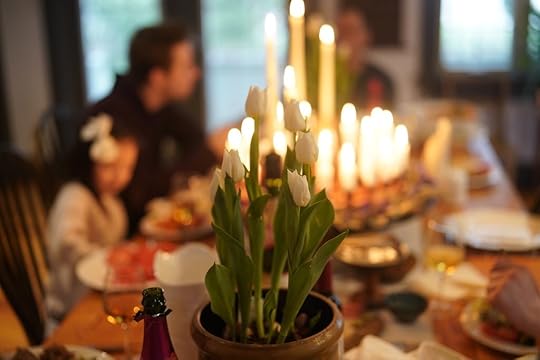

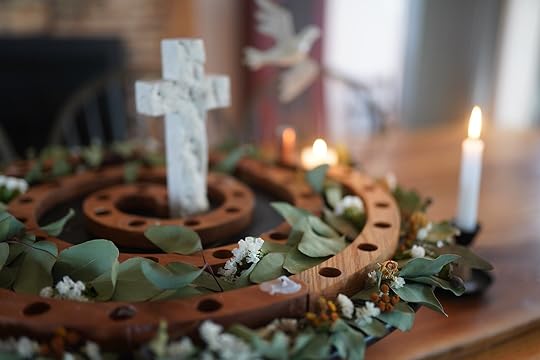
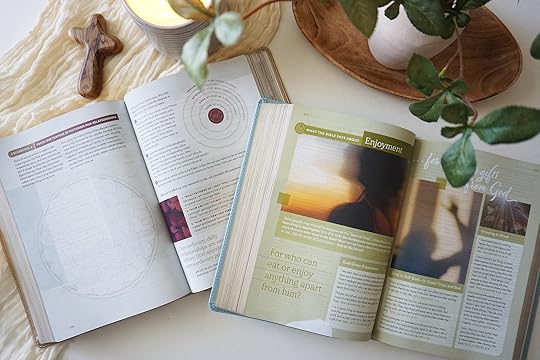
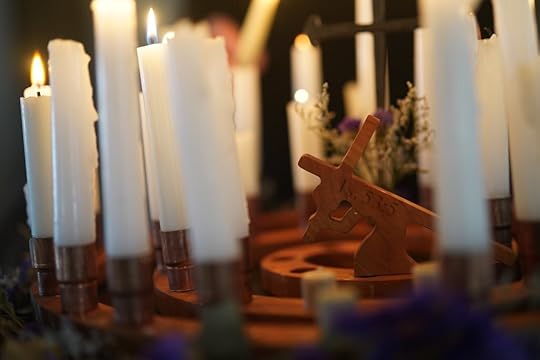
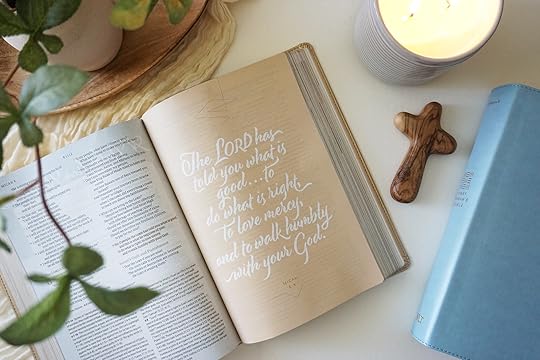
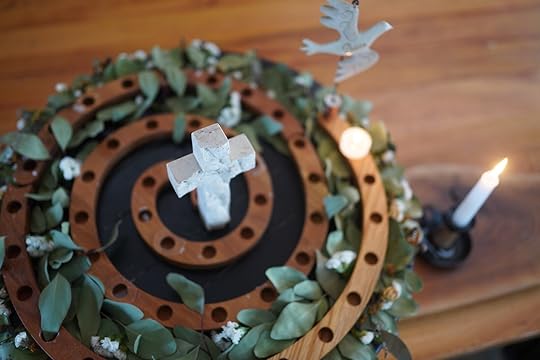

But I took courage from a pattern I see in the Bible.
A pattern I call Believe-Belong-Become. A pattern I dared believe could guide a limited leader like me, not just superheroes of the faith. A few months earlier, I’d completed a seminary assignment where I looked from Genesis to Revelation to see who God uses greatly. I noticed this Believe-Belong-Become pattern and its promise: Every ordinary one of us can live our part in God’s extraordinary purpose.
“I looked from Genesis to Revelation to see who God uses greatly. I noticed this Believe-Belong-Become pattern and its promise: Every ordinary one of us can live our part in God’s extraordinary purpose. “
I saw it in Hagar, who believed God cared about her even when others didn’t seem to. So she chose to return, to belong again to Abraham’s household. Eventually she became a mother of nations herself.
I saw it in Esther, who believed God would save his people, who belonged as she asked the Jews to pray and fast with her, and who became a hero. She risked her life to save the lives of many.
And I saw it again in Mary, who believed the terrifying announcement she’d bear the Savior, who belonged as she sought out kindred-soul Elizabeth, and who became the mother of our Lord!
I knew I had given all I could, and how I’d been preparing the organization for its next leader. But I had to accept a holy invitation to believe God’s promise.
God promises that he causes everything to work together for the good of those who love him and who are called according to his purpose, and that we have overwhelming victory through Christ who loved us (Romans 8:28-39).
I knew I couldn’t take the next step of faith by myself. I needed help. I reached out to people who make me bold—my husband, a sage coworker, one of my brothers. As we prayed and listened for God’s leading, I sensed the answer: “Let go, give up this role, and say goodbye to its prestige, its paycheck, and its platform.” I’d needed to belong.
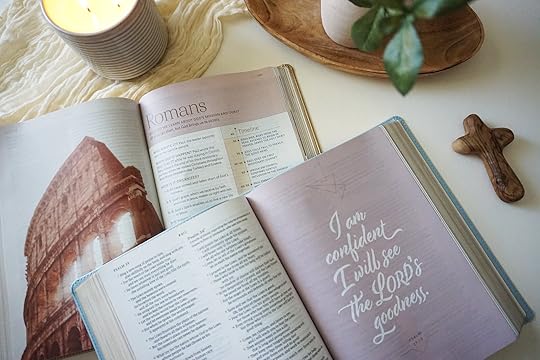
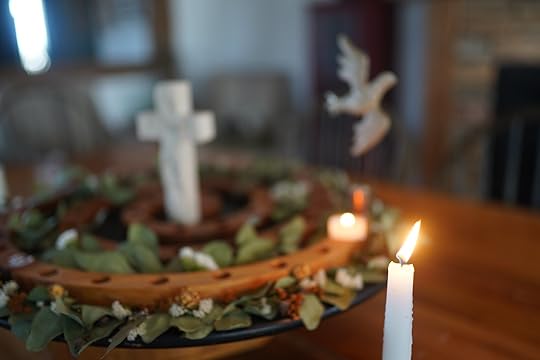
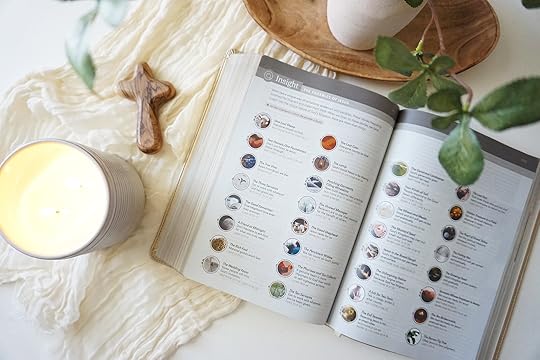
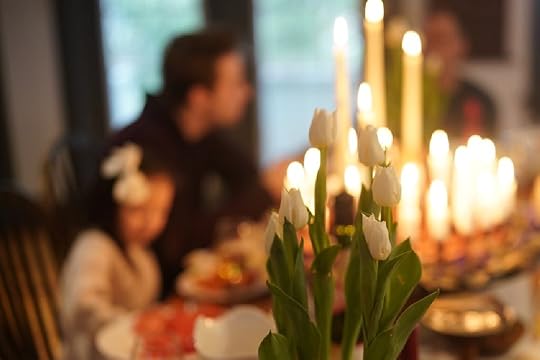
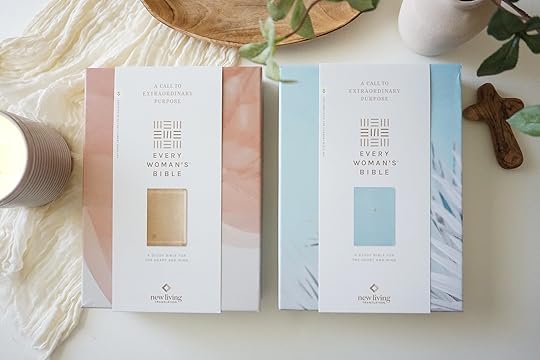
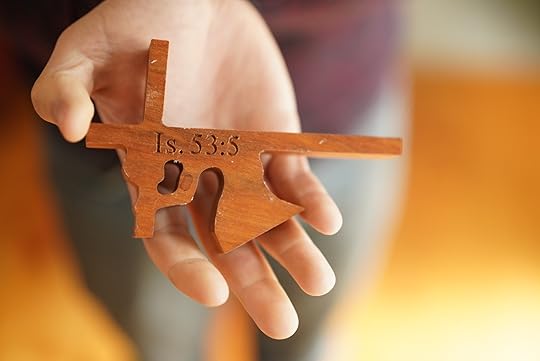
“Each Believe-Belong-Become cycle I walk through, God draws me closer still, and I can follow him more boldly. I am still ordinary. But with God, it’s actually ordinary to live with extraordinary purpose.“
The day I resigned happened to be my twenty-fifth wedding anniversary. I whispered to myself, “God has been faithful in my marriage. He is going to be faithful as I leave this job.” As I told my boss and offered her my resignation letter, God overcame my worst fear—humiliation—by lavishing my deepest desire—His presence.
Later, God led me to be a CEO again, and I was a braver version of myself the second time because I’d followed Him the first time. Each Believe-Belong-Become cycle I walk through, God draws me closer still, and I can follow him more boldly. I am still ordinary. But with God, it’s actually ordinary to live with extraordinary purpose.
What about you? What promise of God’s do you need to believe today? Who makes you feel like you belong and strengthens you to act on God’s promises? What baby step (or big step) of faith is God inviting you to take to become more of who he has made you to be?
This Believe-Belong-Become pattern has emboldened me so much that I wanted everyone to know about it! You’ll find it in the center section of the Every Woman’s Bible.
No matter how be-frenzied or befuddled this moment feels, God is here.
God longs to put His arm around you and say, “Here, daughter. Here’s the role I made you for in my rescue story. Hold my hand.”
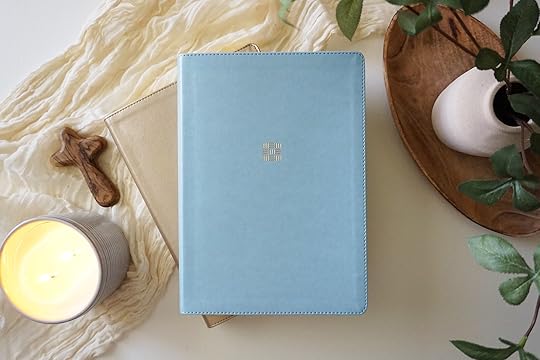
Dr. Naomi Cramer Overton has served as CEO at Stonecroft Ministries and The MomCo by MOPS and as a director at Compassion International and World Vision. She and her husband, Frank, have a son and three daughters—one in heaven. With their four-pound dog (and chief-lap-warmer) Osito, Naomi and Frank live in California and Colorado, where they have climbed more than twenty peaks over 13,000 feet.
Naomi is General Editor of the Every Woman’s Bible, a study Bible for the heart and mind with over one hundred scholars, writers, and contributors—all women—from around the world. It is packed with study notes and devotionals that address topics relevant to women with cultural, historical, and literary clarity and context to gain greater understanding. Discover God’s heart for you through deep study and reflection.
{Our humble thanks to Tyndale Bibles for their partnership in today’s devotional.}
March 20, 2024
Even in the Face of Regrets, How to Practice Hope & Growth {A Lent to Reflect: Part 3}
I went down to the river to pray. And that may sound like living some highfalutin old time spiritual, when in reality the river at the back of the farm runs through an abandoned old gravel pit with piles of crushed rock and overgrown weeds and more than a boulder or two.
When I’m sitting there on the edge of the woods, on the edge of an old pit – the metaphor of it all is not lost on me – there, at the water’s edge, I can see how the river keeps coming, how hope and goodness and God keeps coming, right through the rocky rubble of what was.
Repentance is part of the refining work of our remaking.
It’s been a long, convoluted process over the last several years, the Farmer and I and our children doing this gritty work of restoration back on this farm with a gravel pit next to the river.
The farmer who owned the farm before us, he had dug this gravel pit over 20 years ago, excavated out these veins of stone and rock, crushed it into gravel, hauled truck load of gravel, after dusty truck load out, until all that remained was a cavernous pit.
And all these little mountains of stony subsoil and topsoil dotting the field around the gravel pit and down toward the river.

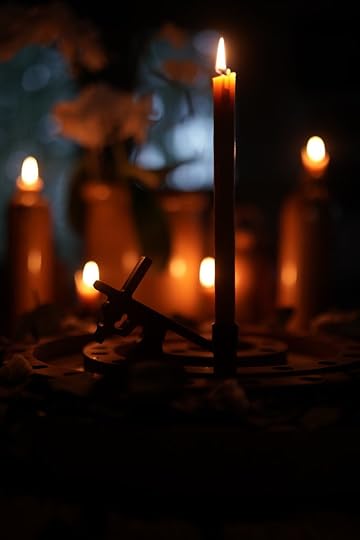 Favourite Resource: Lenten wreath with Cross-Carrying Christ
Favourite Resource: Lenten wreath with Cross-Carrying Christ

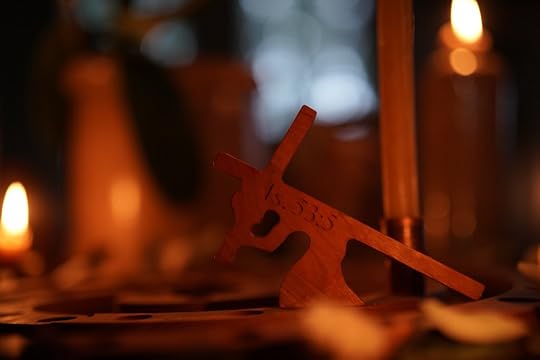 Favourite Resource: Lenten wreath with Cross-Carrying Christ
Favourite Resource: Lenten wreath with Cross-Carrying Christ

If it’s true that the entire life of the believers is to be one of repentance – then maybe a believer is not really living a life of faith without a regular rhythm of repentance.
The third week of Lent, I’d come back here to the river to do my own excavation, to find the veins of hardness within… the rocky places that needed the softness of repentance. I’d been feeling my own kind of crushing, memories that surfaced out of nowhere, moments and snatches of conversations, that made me ache for a do-over.
I started to write it all down.
A record of repentance.
A Lent of reflection – leads to a Lent of repentance. Reflecting on the past couple of decades and how the road has wound, reflecting on all the way’s God is working on a story of restoration, reflecting on raising children and how, in the midst of the imperfect, God is still restorying us in His perfect love… and I sat with my own stream of conscious shortcomings: lines I said that now strangled me with grief, words I’d said that now felt like gravel in the mouth, things I’d done that have ended up mining out parts of me, leaving pocked pits of emptiness.
I filled up pages.
If, for every single one of us, all of our very best attempts end up still as very greasy messes, then what of our slapdash, messy attempts in the midst of our every days?
This record of repentance, this is deeply tender work that’s holy work, the needful work of all those really living, because, as Luther said, “When our Lord and Master Jesus Christ said, “Repent” (Mt 4:17), he willed the entire life of believers to be one of repentance.”
If it’s true that the entire life of the believers is to be one of repentance – then maybe a believer is not really living a life of faith without a regular rhythm of repentance.
Repentance is part of the refining work of our remaking.
The way of Jesus takes the high way of humility that doesn’t assume to know everything, that leads to a posture of curiosity to understand more, that leads to an empathy for everyone’s complicated humanity, that leads to a community of peace.
And in this day and age of rage and polarization, this day and age of anger and demonization – there is another way, a counter-cultural way of turning and returning to the way of Jesus. The way of Jesus takes the high way of humility that doesn’t assume to know everything, that leads to a posture of curiosity to understand more, that leads to an empathy for everyone’s complicated humanity, that leads to a community of peace.
This cultural moment calls for less outrage and more outreach, for less pointed resentment and more personal repentance, for less animosity and more cruciformity.
Jesus didn’t revolutionize the world through passionate anger, but through the passion of the cross, through a love that lays down self and forgives.
I felt that as I laid down so many memories and tender moments, as I wrote out my own record of repentance – what I got wrong and wish I had done right as a mama, as a wife, as a human being in a broken, complicated world. And how God gives Himself on the Cross to forgive us, to give us Himself, to save us for intimacy with Himself.
And it’s not that you aren’t ever going to get it wrong, but what you always do with it afterward, which is what C.S. Lewis was saying when he wrote,
“In the same way a Christian is not a man who never goes wrong, but a man who is enabled to repent and pick himself up and begin over again after each stumble—because the Christ-life is inside him, repairing him all the time, enabling him to repeat (in some degree) – the kind of voluntary death which Christ Himself carried out.”
What keeps repairing and restoring us – is to keep living the cruciform way of Christ, who is actually living the cruciform, dying-to-self Christ-life within us – which completely transforms us and all our world.

 Favourite Resource: Gratitude Journal that lets you see the gifts on this day from previous months
Favourite Resource: Gratitude Journal that lets you see the gifts on this day from previous months

This cultural moment calls for less outrage and more outreach, for less pointed resentment and more personal repentance, for less animosity and more cruciformity
A woman recently told me how, when she read that in the end, there will be a Book of Deeds, that “the dead will be judged according to their works by what was written in the books,”— what she did was this: she began to write down everything she had ever done wrong.
She kept a record of her own wrongs.
She said she did this every single day, for months and months, recording every fault, every failure, every flailing, everything she could recognize and remember, she recorded. And she painfully realized: it never, ever ends.
The list of her sins broke her heart – and God’s – and the weight of her wrongs unbearably crushed her.
To whom shall we go? (John 6:68) Where can we go, where can we flee? (Ps. 139)
And then she met the only One who bore it all.
The only way to lose the weight of your burdens, is to lean the whole weight of everything on the Cross of Christ – and feel the weightlessness of His grace.
Then she told me how it hit her. How about 12 years after encountering Christ at the Cross – she started counting, not her sins, but her gifts. When you truly encounter Christ – you stop counting your wrongs and truly count on His grace alone to cover it all.
And she became obsessed not with her wrongs and her book of deeds, but with His grace and her book of thanks. And she powerfully realized that the same thing is true: His grace never, ever ends.
The record of our endless wrongs — is covered with the record of His endless grace.
The list of our sins – can be covered with the list of His gifts.
The record of our repentance – turns us around to record the graces of our God. And it never, ever, ever ends.
When you truly encounter Christ – you stop counting your wrongs & truly count on His grace alone to cover it all. The list of our sins – can be covered with the list of His gifts.
Back at the river that runs by a gravel pit, sitting back there at this river of grace that runs through everything, I brim, and my own gratitude streams.…. and waters so much hope.
His grace covers all our griefs, His rightness covers all our wrongness, His Cross covers any shadow that crosses our days. Our shortcomings as a parent, as a partner, as a person don’t ever get to undo us – we are only ever undone by His grace.
And I am – completely undone by the ways of His grace.
The story of any one of our wrongs don’t get to define us – because we get to be refined by the Word who keeps writing restorying us with stories of restoration.
And when we have this spiritual practice of daily picking up a pen, and daily keeping writing down our own lists of gifts and His grace, day after day, month after month— we are growing in hope: that there will always be enough grace to come and meet us, no matter how we, or life, falls short.
Grace is always coming to carry us through.

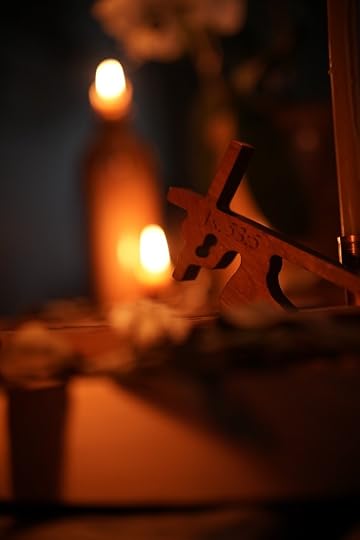 Favourite Resource: Lenten wreath with Cross-Carrying Christ
Favourite Resource: Lenten wreath with Cross-Carrying Christ


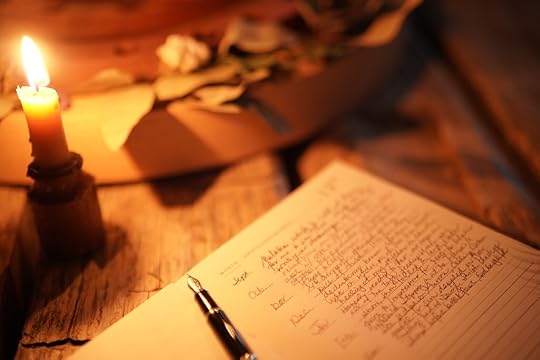 Favourite Resource: Gratitude Journal that lets you see the gifts on this day from previous months
Favourite Resource: Gratitude Journal that lets you see the gifts on this day from previous months


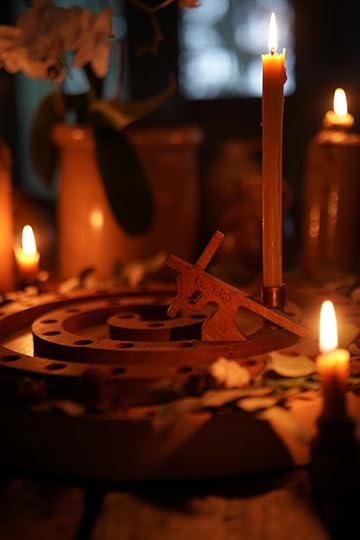 Favourite Resource: Lenten wreath with Cross-Carrying Christ
Favourite Resource: Lenten wreath with Cross-Carrying Christ


Our shortcomings as a parent, as a partner, as a person, don’t ever get to undo us – we are only ever undone by His grace.
It’s at the end of the third week of Lent when the Farmer finally gets word, that after all our work throughout the last 3 years of leveling the remaining piles of rubble and rock around the gravel pit, hauling and landscaping and grading the topsoil, that we’ve been approved, meeting the qualifications of a complete restoration of the land back to productive agricultural farmland.
Our sons cheered! Across the kitchen, I could read the happiest relief in the Farmer’s eyes as he smiled. Restoration project complete!
The excavated gravel pit of rock and dust finds itself restored to a pond filled with water there by the river, a haven, where the trumpeter swans will return to this spring, where the natural grasses will grow and the turtles will float, and we will witness the reflected glory of God blazing golden across the pond on warm evenings in June. And my own interior excavation of restoration, turns and returns me to fill with gratitude, to fill a gratitude journal with overflowing thanks for His common and cross-formed grace, that restores me.
We are but dust & to dust we shall return. And yet too, we are dust that’s the stuff not just of stars, but of God, the stuff of glory, the stuff of growth & possibility & restoration & resurrection & eternity.
It’s true: We are but dust and to dust we shall return — dust that’s ground down, dust that’s fragile and vulnerable, easily blown this way and that. And yet too, we are dust that’s the stuff not just of stars, but of God, the stuff of glory, the stuff of growth and possibility and restoration and resurrection and eternity.
Lent is this mercy of right seeing and right being.
This mercy of seeing who we truly are: but dust, who sees how, for all our good intentions, we’ve dirtied and sullied things, made filthy rags of the best of things. And yet there’s this mercy of being who we truly are — dust in the hand of a merciful God who forms and transforms the dust, who transfigures the disfigured, who gathers dust from the pit to make and shape a pottery vessel to be home for the divine, dust made into a pottery vessel filled with the fragrance of Christ that rises, and keeps rising, in thanks for amazing grace.
I tell the smiling Farmer that, and he nods, awed by it all too: that gravel pits can be restored to oasis of grace.
That rivers of grace still run through everything.
Catch Up — & See What’s Upcoming — in this Series during Lent:Read: A Lent to Reflect: Part 1: How the Practice of Looking Back Changes Where You Are Going To (With Video)
A Lent to Reflect, Part 2: What I Wish I’d Done Differently As a Mom & How to Work Toward Restoration As a Family
A Lent to Reflect: Part 4: How to Practically Learn the Art of the Spiritual Practice of Reflection to Experience Soul Transformation
A Lent to Reflect:Can I Give You Your Free Reflective Lenten Journaling Calendar?
Can we give you a free tool to engage the spiritual practice of reflection this Lent with your free 40-day Lenten Journaling Calendar, with a reflective journaling prompts for each day of Lent, helping you to be soul restored and re-storied into the abundant way of the Beatitudes.
This Lent, lean into the spiritual practice of reflection because: Reflection is how you see the next best action.

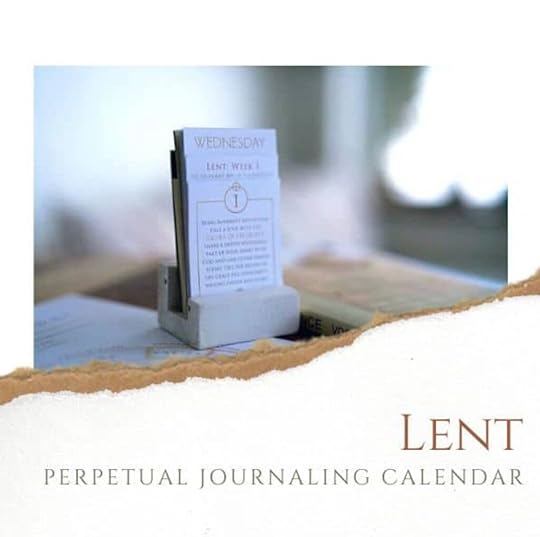
Simply come join our email family over here, and your farm girl would just love to gift you your free Reflective Lenten Journaling Calendar, tucked right into your inbox, along with the warmest welcome to our email family.
No matter where you’re coming from or where you’re going to: An honest reflection of the past is the way you see a holy redemption of the future.
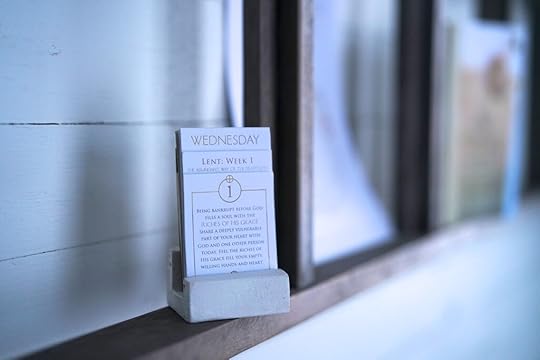
Without the spiritual practice of reflection, you can end up doing things you’ve always done, while expecting things to be different.
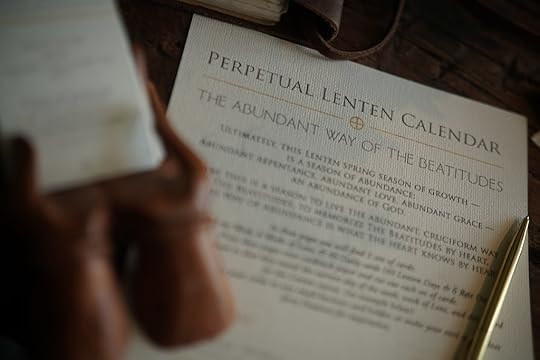
The spiritual practice of reflection lets you see not only the parts of the story that you’d do anything to change – but how God used some of the hardest parts of the story to change you.
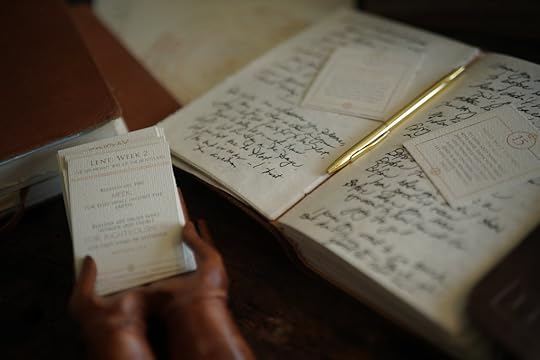
Start your free Reflective Lenten Journaling Calendar today and deepen your spiritual practice of reflection and daily journaling with a thoughtful, reflective journaling prompt every day of Lent.
Because:
Reflecting on Christ leads to being a reflection of Christ.
Get your FREE Reflective Lenten Journaling Calendar hereMarch 18, 2024
Why You are More than the Sum of Your Most Painful Moments
Charaia Rush pulls us in today with the vulnerable story of her labor and delivery, one of the hardest moments in a woman’s life, and reminds us of the story of Naomi from the book of Ruth: While we are in the midst of suffering, it can feel all-consuming and we can even start to believe we’ve lost our identity to our pain as well. It’s a joy to welcome Charaia to the farm’s table today as we discover the hope Christ gives us even in our darkest moments:
Guest Post by Charaia Rush
I had been in labor for eight hours. My phone, propped on a tripod, held my husband’s face as he watched from the other side of the world, due to his deployment.
My doula, whom I had met a month prior, held my hand while I worked my way through the contractions that grew closer and harsher. Suddenly I broke down and, with a heavy breath, released the words “I can’t do this.”
My doctor looked at me with eyes both gentle and strong, and my doula pulled me into her chest.
It was as if each woman in the room knew that my proclamation of defeat was about much more than this moment and had been given a preview into my journey up until that point.
A journey that started when my husband left for seven months to join the military, only to confess after his return that he had been unfaithful during his time away. A journey that was filled with me uttering “It’s ok, I forgive you”—a knee-jerk reaction to desperately save my marriage because divorce was never an option for me. It’s like each of the women in the room knew that each tear they were witnessing carried a heartbreaking scene from this season.
Though they knew none of the details of this season, they held me like they did.
They covered me when we all glanced at my phone and witnessed my husband sleeping. They smiled weakly when I shouted, “I love you!” to him through the tears as I held our daughter—and was met with silence before he muttered he was tired and the call ended.




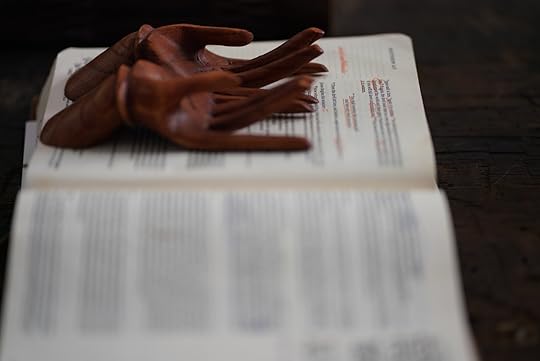
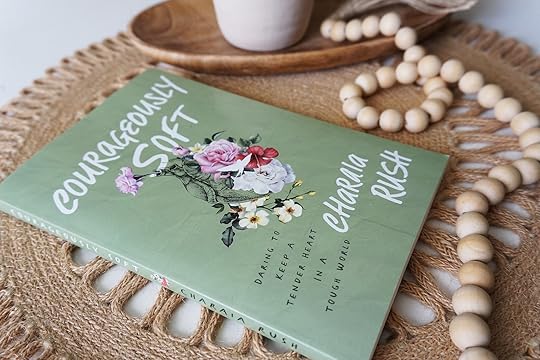

The book of Ruth begins by introducing us to Naomi. Her husband, Elimelech, takes her and their two sons out of Bethlehem and toward Moab. They leave the promised land of Israel to head back into the wilderness from which they’d been delivered.
After they arrive, both sons marry, but then Elimelech and his two sons die, leaving Naomi in the most disadvantaged class in the ancient world: a childless widow with no man to claim her as his own daughter or wife or mother.
Desperate for redemption in a very bleak situation, Naomi plans to return to Bethlehem, for she “heard in Moab that the Lord had come to the aid of his people by providing food for them” (Ruth 1:6 NIV). Even in this tragic situation, she knows there is no hope found by moving farther away from God. The story continues with Ruth, one of her daughters-in-law, proclaiming her loyalty and accompanying Naomi back to her homeland.
“Even in this tragic situation, she knows there is no hope found by moving farther away from God. “
Naomi and Ruth’s trek back to Bethlehem is extremely dangerous. They likely are traveling during the late summer, through the Judean wilderness near the Dead Sea. Aside from the environmental threats, this is not a safe journey for two women alone. And yet, the knowledge that she’s heading toward the very thing she needs makes Naomi both willing and brave.
When they enter Bethlehem, “the whole town was excited about their arrival” (v. 19). Naomi is known among her people, and her arrival brings excitement. But soon their initial joy is hushed as they ask one another, “Can this be Naomi?” Naomi’s pain spills out of her being. So it’s no surprise she responds this way:
“Don’t call me Naomi. Call me Mara,” she answered, “for the Almighty has made me very bitter. I went away full, but the Lord has brought me back empty. Why do you call me Naomi, since the Lord has opposed me, and the Almighty has afflicted me?” (vv. 20–21)
Naomi’s confession—her Mara moment—represents a crossroads and a choice made between three paths in response to her suffering. One path can only be walked if Naomi believes her identity is wrapped in her pain. The second path is one of following the road of denial.
Finally, the last path is filled with rock and gravel that whisper for her to offer up the truth of her pain with hope that God can enter it.
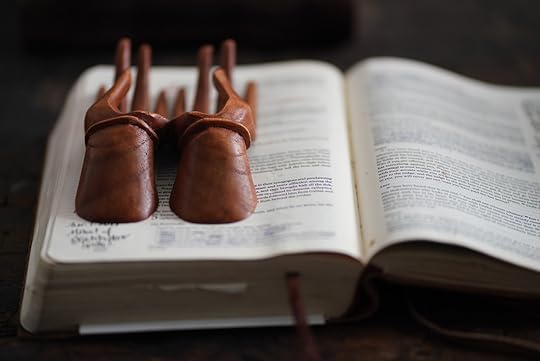






We all face such a crossroads in our pain.
We can deny the pain altogether, let our pain name us and overshadow our true identity, or openly cry out and name our pain to God and let Him hold us. While denial may promise to smooth out the sharp edges of our hearts after breaking, and while settling into our own Mara moment might feel validating for a time, neither of these choices make room for God to enter our personal psalms of honesty.
“We can deny the pain altogether, let our pain name us and overshadow our true identity, or openly cry out and name our pain to God and let Him hold us.”
Ultimately, God with us in our pain is the only thing that can stop the turning of our hearts toward the hard places. When we allow ourselves to be held in our pain, we are free to speak the truth and also wrestle against the urges to deny our pain or claim it as our identity.
See, Naomi wants to be called a different name. Nestled under her confession is a belief that the sum of her identity is her affliction. But the author of Ruth refuses to accommodate such a lie. We don’t see the author suddenly refer to Naomi the way she refers to herself. By continuing to call her Naomi instead of Mara, the biblical author, like Christ, upholds the truth that we are not the sum of the worst things that have happened to us.
Where we find ourselves will never change who God died for us to be.
Mended and whole. Soft and pliable. Honest and true.
In Christ, our pain is stripped of having the final say. In Christ, love speaks a louder word over the names we give ourselves in our lowest Mara moments.

With deep empathy and encouragement, writer Charaia Rush invites us to experience the countercultural path of staying open and vulnerable to the goodness of God and the miracle of staying tender in a tough world that only God can bring about.
Charaia Rush is a writer and speaker who is passionate about telling the story of the gospel and watching how it softens the hardened corners of our hearts and illuminates the dark rooms of our spirits. She has written for outlets such as Christian Parenting and SheReads Truth. She resides in Colorado with her two lovely children. Connect with her online at CharaiaRush.com and on Instagram @CharaiaRush.
In Courageously Soft she helps you to
· identify the root of a hardened heart
· move from fearful self-preservation to the hope of being held
· recognize God’s presence in the midst of pain
· replace denial, shutting down, and closing off with abiding trust in God’s love and care
{Out humble thanks to Baker Books for their partnership in today’s devotional.}
Ann Voskamp's Blog
- Ann Voskamp's profile
- 1368 followers



